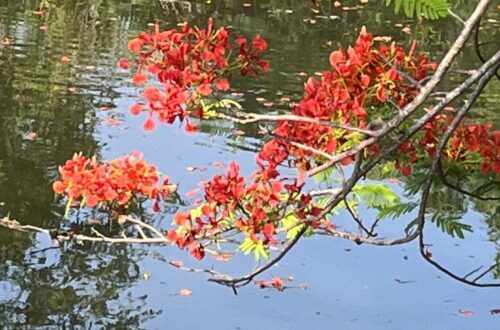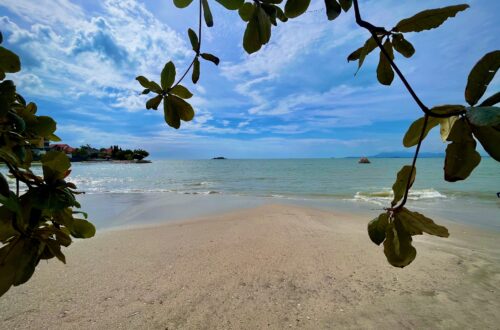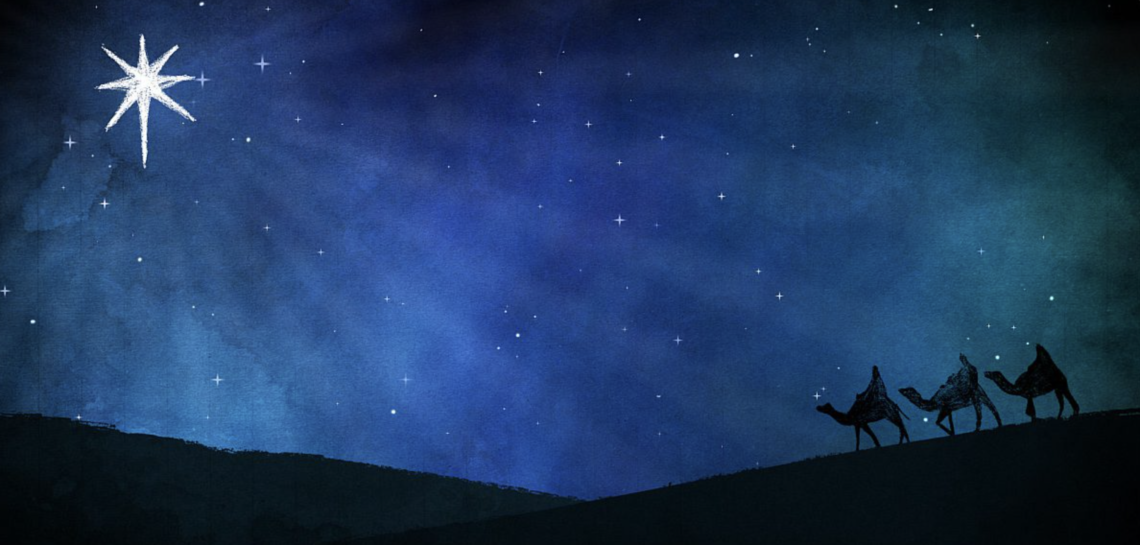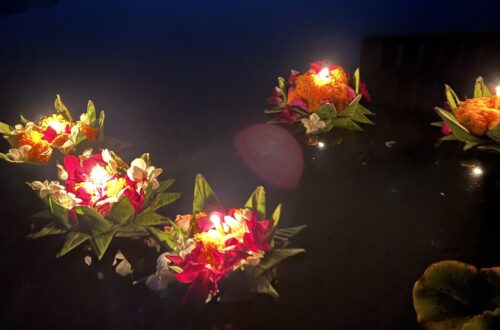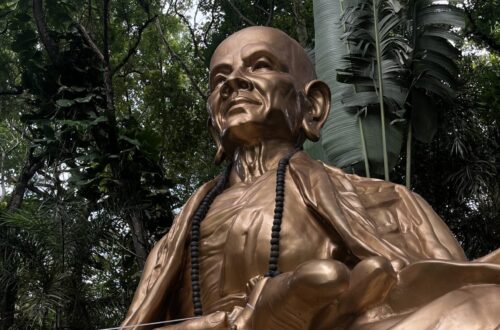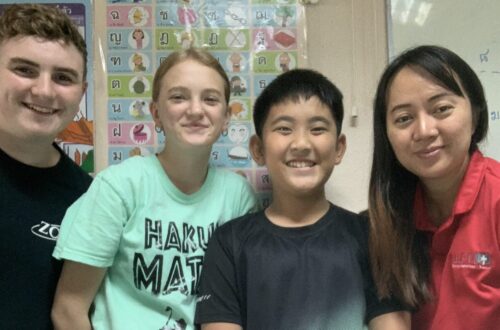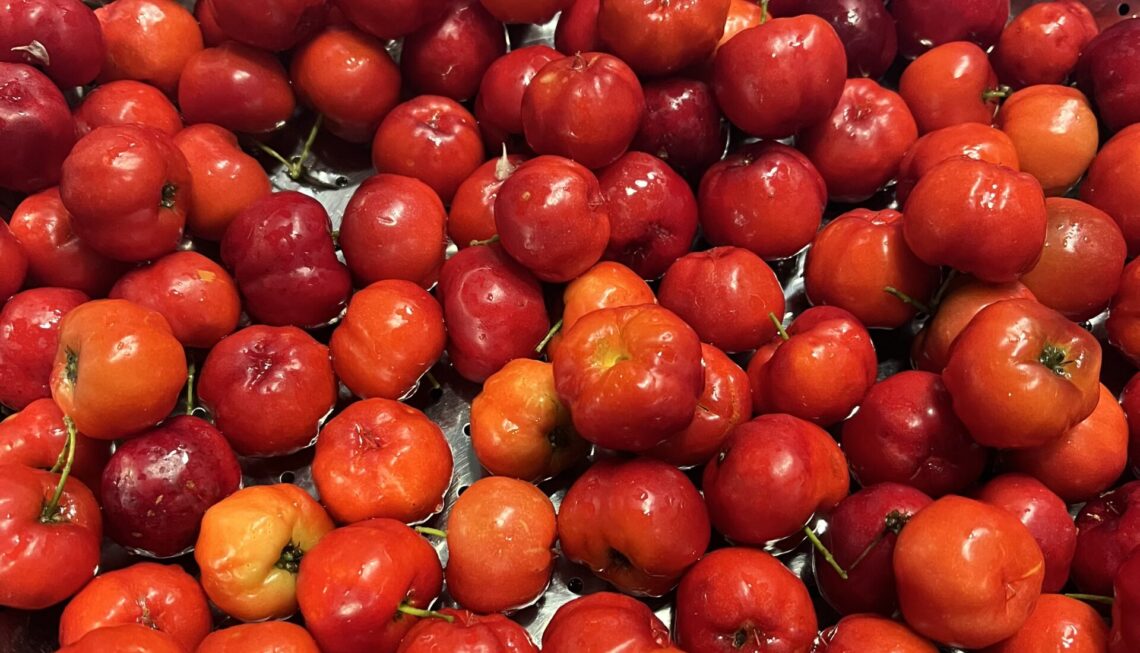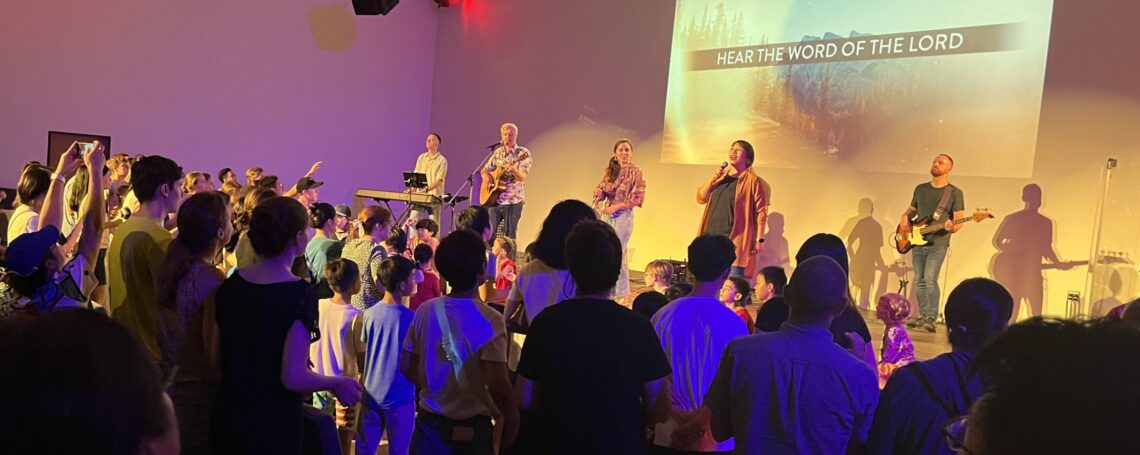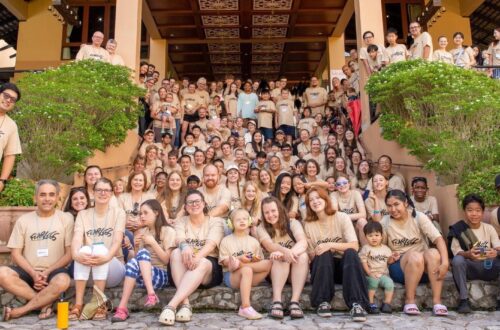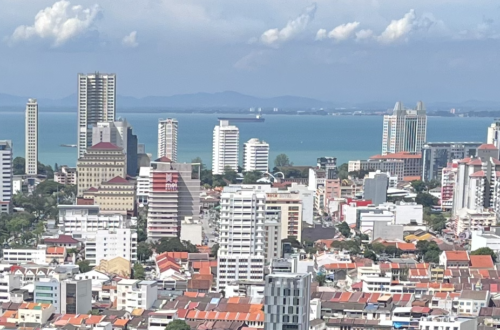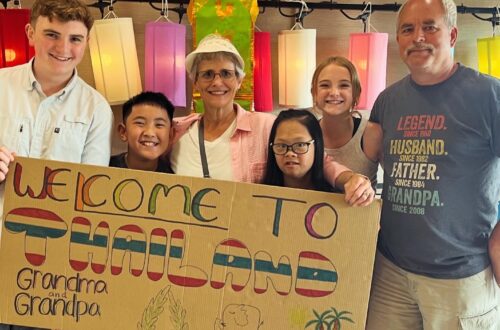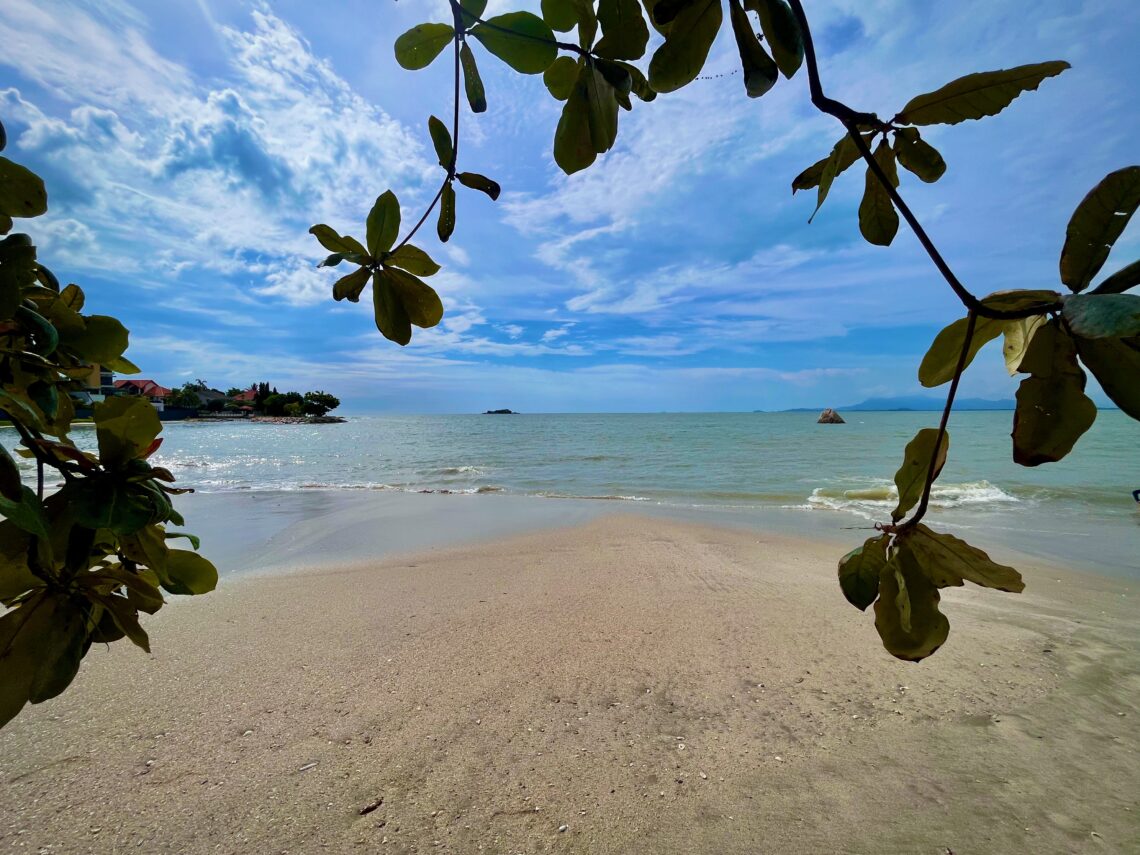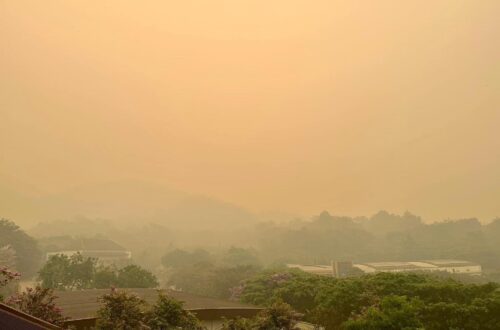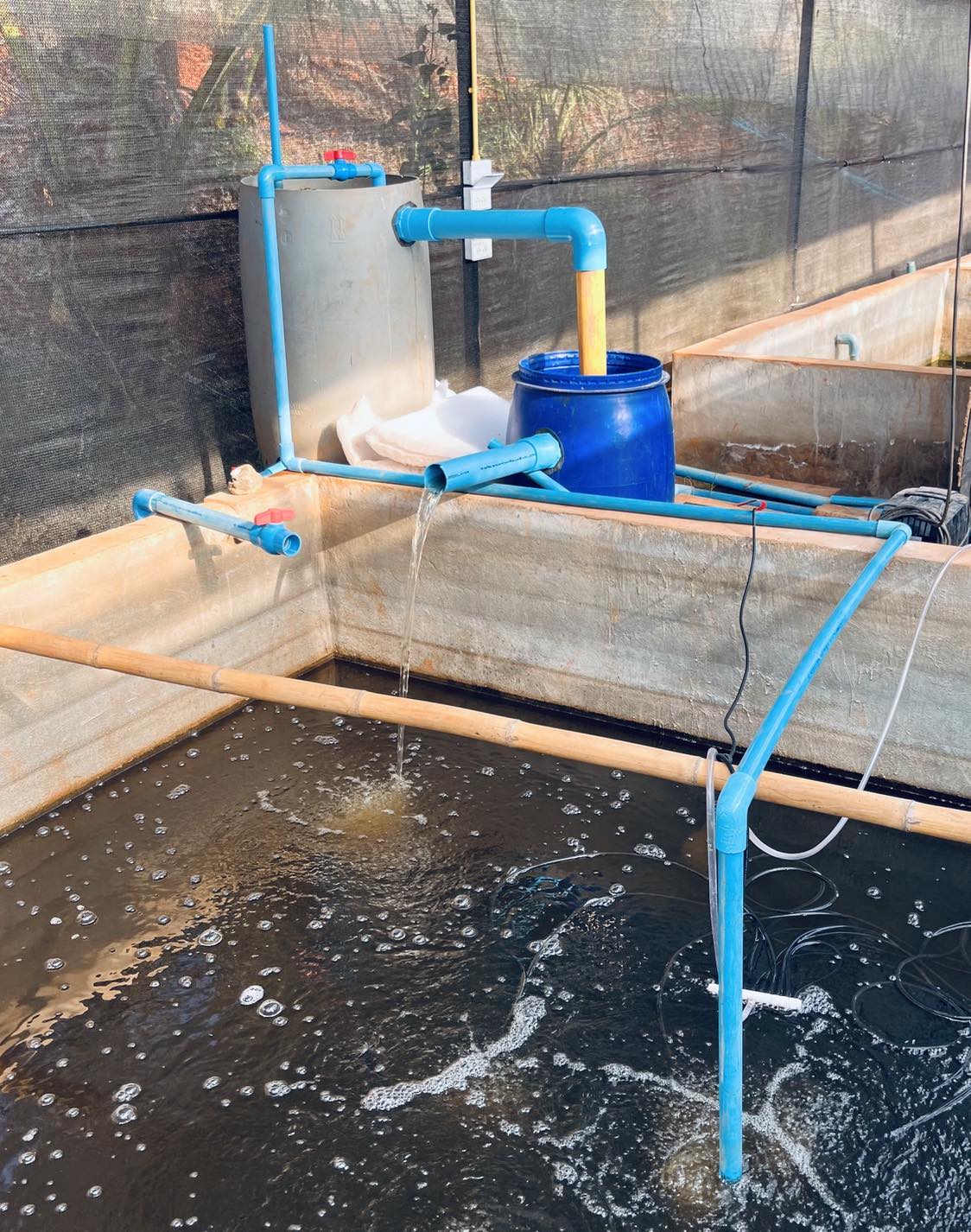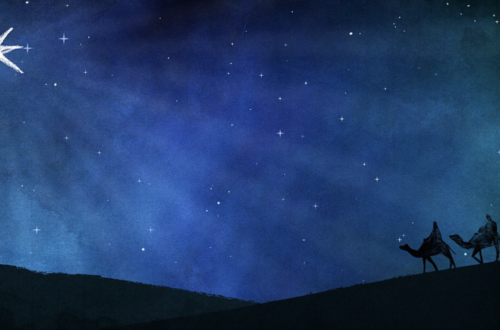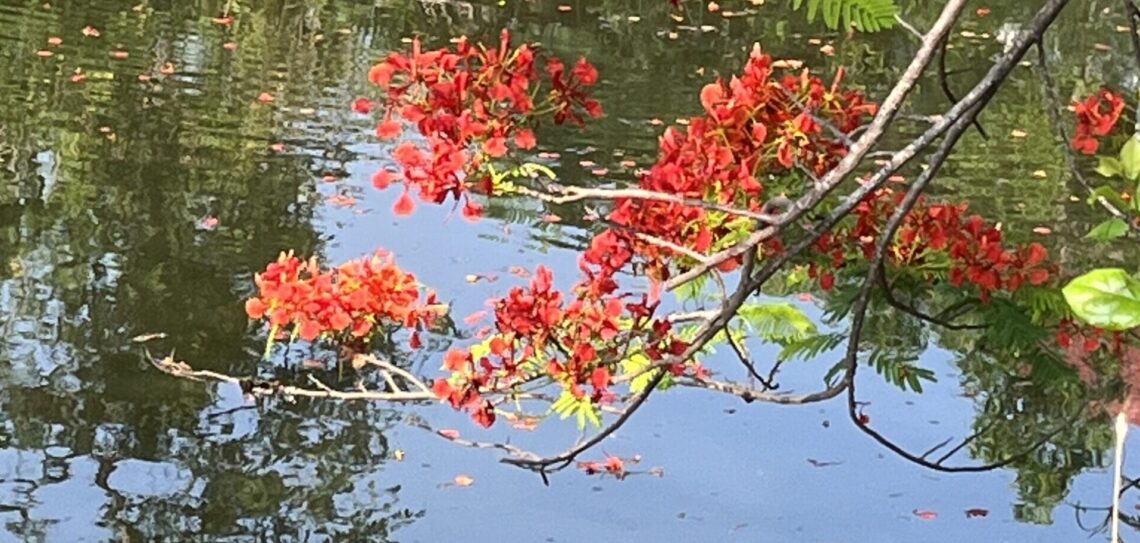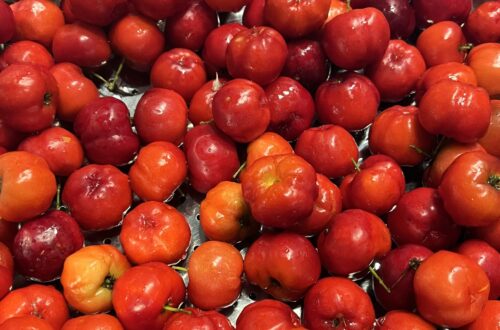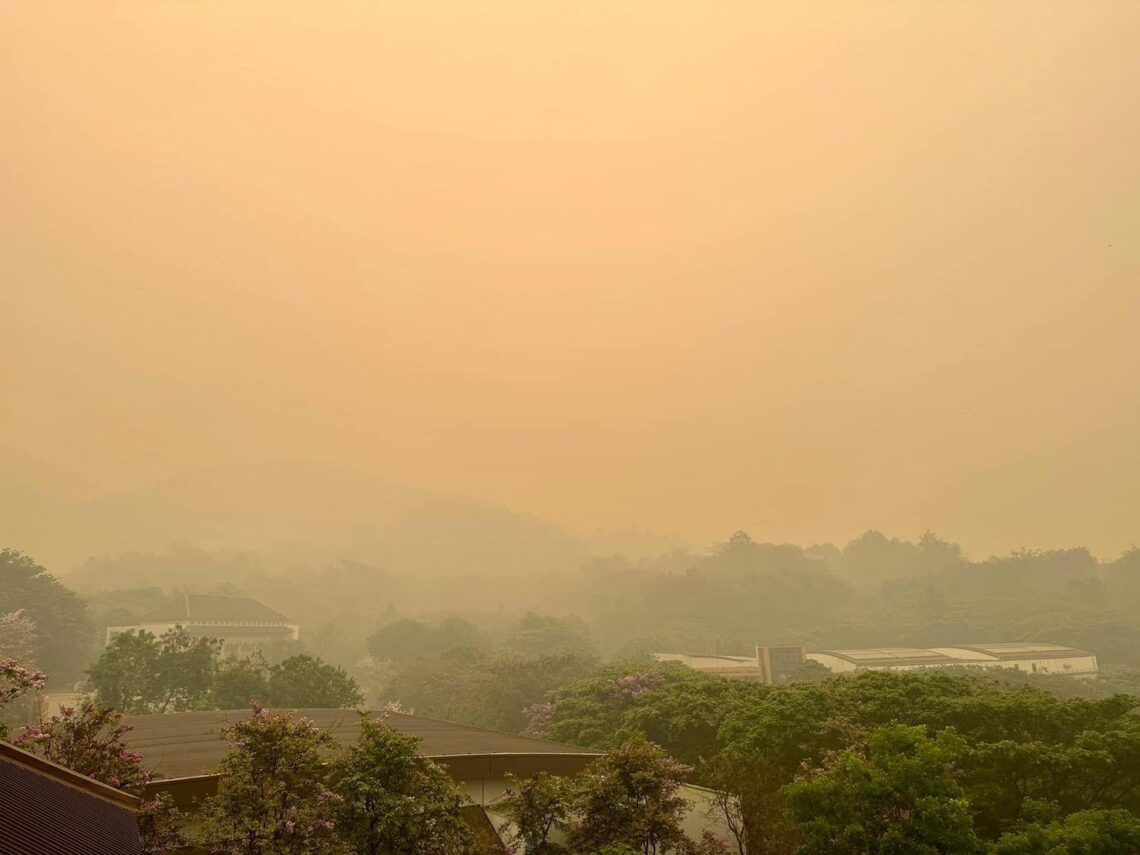Doxology
-
Good News of Great Joy
God has woven our story.
When we were preparing to move to Thailand, we told many people the story of how God had been working in our lives for nearly twenty years to bring us to this calling and prepare us for this work. I shared about my hesitation to accept that God would be calling us to move to the other side of the world right when it felt to me that it was time to move into a more settled season for our family.
You see, it was just as we were finishing up on renovations of our first home (a fixer-upper in Colorado) that it was time for Rod to move from his job in law enforcement in CO to work on the family ranch in North Central Nebraska, so we moved to a new home that had recently suffered significant flood damage (an even bigger fixer-upper). It was just about when we were finishing up renovations on the ranch home that we needed to move to town to pour our energy into a new business venture that we were struggling to get off the ground. This move came with another new home: the biggest fixer-upper project yet. I told anyone who came to listen to our story that, as we neared the completion of our latest and greatest home renovation project, I had started to really dig my feet in. “Don’t make me move” became a mantra I repeated in contexts that hardly warranted such “drama.” So when Rod told me he was feeling called to move—not just to a new house and a new job—but to the other side of the world, I did not respond with the ready “Here I am LORD; Send me.” that my 10 year old self had longed for an opportunity to say.
When sharing our story, I admitted that I could see how the hand of God had been preparing my husband for this next adventure in every place he had sent us. Rod’s criminal justice degree, elite police academy training, and work in law enforcement had prepared him for the work he was being called to do in rescuing victims of child trafficking. When managing the family ranch in Nebraska, he had gained expertise in land management that would prove useful in helping to establish self-sustainable practices at the ZOE Child Rescue Center and Children’s Home. The knowledge and skills he developed while operating our own small businesses would also be instrumental in other projects ZOE is currently pursuing. It was not hard to see God’s hand at work in beautiful ways in my husband’s story, and I am sincerely honored that his story is my story, too. Of course we would follow God in this next adventure!
That story I told was true. All of it. But it wasn’t the whole story. There is another very important thread woven into each of those homes we lived in, loved, and left. You see, there was another calling on my life that, in the midst of all our pursuits, sometimes seemed to take the back seat. Relying on God’s sovereignty, I trusted it would all come together in His time…which often seems to be a bit slower than we expect it will be. But this last, biggest move felt like so many doors closing on my own truest calling…and it was difficult for me to make sense of why God would want to do that.
Another Thread
Let me back up a bit. Early in our marriage, we lived in a one bedroom of a house we shared with three of Rod’s fraternity brothers. After that, we spent a few months in a rented house while preparing to move to Thailand for some missions/relief work we were doing. We stayed in too many places throughout our year in Thailand to even count: but none of them were home. When we moved back to America, we rented a great apartment from which we could invest our time in my seminary studies and Rod’s academy training. It was only when we were pregnant with our first child that we moved into our first home. Building each home, for me, was always—really—about building our family.
Let me back up a bit further. When I was a girl, maybe 10 or 11 years old, I read an article in a “Focus on the Family” newsletter that was sitting on our kitchen counter. It was about a large family that had grown with a mix of biological and adopted children. I told God I wanted to have a family like that someday. He told me that is what HE wanted for me as well. I had such confidence in my call to be the mother of a large family that I always struggled to figure out what other kind of career I might pursue or what other dreams or ambitions might be worth pouring my time, energy, and talents into. In an age where little girls were taught to dream big and shoot for the stars, my heart was inescapably drawn to visions of home and family. In the deepest part of my being, I carried around a picture that God gave me of the family I would have one day: The faces were blurry, but there were a lot of them. In case I have not yet made it clear: the truest calling on my life since I was a girl, and the deepest longing of my heart, has been to have a home filled with a big, beautiful family. That desire and calling is the backdrop of every other story my life might tell.
Growing our family according to God’s timing.
While living in our first home in Colorado, we had our first two children. Honestly, compared to stories others tell, those pregnancies were easy. I was made to do that. Because the picture of my family I carried around in my head included many children that did not look like me, however, we pursued adoption next. We saved up and jumped in as soon as we were allowed (based on rules about the ages of other children in the home). Adoption from Thailand is a long, slow process. It wasn’t until 2015 (over three years after moving to our home at the ranch) that we finally brought Jeremiah home. That same year, we completed all the training and home certification to become licensed foster parents. We said “yes” each time we were asked about a placement, but each time another family was found closer to the children’s home or school district. We inquired about children on adoption advocacy lists who were in foster care waiting for a chance for permanency (usually sibling sets and older children). For one reason or another, we never received any of those placements either.
Doors Closing
When we moved to town, we moved into a home that I knew would not pass all the licensing standards without significant work, so we let our foster care license lapse. That move meant closing some doors in the process of growing our family. However, it was also at that time we were in the beginning stages of our next international adoption process. We saw Tallulah and Elijah in an advocacy post on Facebook and agreed they would be the next children we would pursue for adoption into our family. They were living in a special needs orphanage in China and China’s strict adoption policy stated they could be adopted only one at a time. Tallulah came home to our home in Atkinson in May of 2019. We would have to wait a full year (until May of 2020) to submit our application and dossier to adopt Eli. However, COVID shut the world down beginning in February of that year. Since then, we’ve been stalled in our adoption process as one of many waiting families longing to bring their children home from China.
Honestly, every day that passed with no word from China it seemed less likely the program would never re-open. For years, it has seemed unlikely that our adoption of Eli would ever be completed. Still, hope dies hard, so we did what we could to keep that door open. While we prayed that we would see Eli again on the day he became our son, we also prayed about how else God might desire to grow our family and fulfill this calling on my life.
We knew that our move to Thailand would mean we could no longer adopt children through Nebraska foster care. We knew that we would no longer qualify to adopt a child from Thailand as our family is too large for their international adoption program policies. We also knew that, as missionaries, our income would no longer qualify us for many other international adoption programs, even if we were able to figure our way through the red tape of the immigration process for adopting internationally while living in a different foreign country. We also knew that if we would ever have more children biologically, the clock was ticking, as I am now 40 years old. It seemed we were facing so many closed doors.
Our Plans In God’s Hand
We decided to leave both our stalled Chinese adoption and our chance at having more biological children in God’s hands. A pregnancy would disrupt the adoption of Eli but if we waited too much longer, we might no longer be able to have children biologically. We figured that, even if China DID re-open the program, there were so many families “in line” ahead of us (farther along in the process when it shut down), we might even be able to have a baby while waiting. When it came to be our turn to complete the adoption of Eli, that baby might already be a year old and cause no big complication.
It was just days after scheduling Rod’s scout trip to Thailand for the final stage of his interview and employment process with ZOE that I learned I was pregnant! This felt like a confirmation not only of the calling I received as a girl longing for a large family (my family was not done growing!), it also felt like confirmation that both Rod and I were walking into callings that God had prepared in advance for us.
Later, while Rod was in Thailand gaining confirmation and excitement for the journey we were soon to embark on with our family, the newest baby I’d wrapped my whole heart around died inside me.
We moved forward in the hope that God desired to knit another child together in my womb just as much as I desired him to do so. A few months after moving to Thailand, and almost exactly one year after we lost that baby, I visited the doctor for some health issues I was having. I wasn’t sure if what I was feeling was just the result of a drastic change in our diet, the severely polluted air we were breathing, or something else…but I knew something was wrong. Some tests revealed an infection, and when I went in for treatment, the doctor did some further testing and examination. When I left the hospital that day, it was with a diagnosis of Endometriosis: the most common form of infertility in women today.
The only treatments for the symptoms I’d been experiencing were hormonal and would close my womb. I decided instead to deal with the symptoms so that what seemed to be our final opportunity to grow our family would not turn out to be yet another closed door. I also worked to accept the fact that IF the door could still be considered open, it was barely a crack: there was a chance I could still get pregnant naturally, but it was very slim.
Hope and Loss
Over the next several months, I talked to God about what he was doing in my life. I asked if I misheard him when I was a girl, or if I had gotten off-course in pursuing and prioritizing his calling on my life. I felt reassurance of his love for me about all things past, and we talked about what he might desire of me next. While my longing to continue to grow my family did not go away, I decided it would be trumped by the deep gratitude I feel for the blessings already in my life, and somehow my unsettled seeking was balanced equally with the peace that surpasses understanding. Thinking about what else God might have in store for me, if it was not more children, even started to feel fun and exciting. He has already proven time and time again in my life that he has good things in store. The journey is always onward and upward.
It was when we were in Taipei, the day the big earthquake hit, that I discovered I was pregnant. The hope and excitement I had to grow my family felt new all over again. In some ways, I wanted to shout it from the mountaintops: look what God has done! However, I also felt a very real need to keep it quiet. The moment our pregnancy became public, it felt to me our adoption process would be ending…and I wasn’t ready for that. If we ended the adoption process and then lost the baby, like we’d lost the last one, we would be losing both of our boys in one fell swoop… and since walking beside a dear friend when she lost her beloved child at 34 weeks, it still never really felt “safe” to make such an announcement given what was at stake for our family.
While we anticipated the news for years, it was only a little over three months ago that China officially, permanently, closed their adoption program. Our Elijah is now 12 years old and will never be able to come home. The grief of this knowledge was admittedly tempered with the joy of the boy growing in my womb…and the comfort that we had not somehow made the wrong choice in praying for a baby while also praying to bring Eli home. But I still was not ready to make “Facebook official” the news of the little boy growing in my womb while that joy was still intertwined with sadness surrounding the other son we had loved and lost.
Unto us a Child is Born
On November 20, 2024, Noah William Keim entered this world. The next day, I am sure many of my stateside Facebook friends who were on the other side of the world while I was growing enormous, were surprised by our Facebook posts announcing his arrival.
While the news of the arrival of a new baby is easily met with joy, my joy is undeniably magnified in the context of the whole story. God is weaving a masterpiece, and I am right in the middle of it!
This child is so very deeply loved and undeniably wanted. This thread of our story bears the fingerprint of God as surely any other part. Carrying this child in my womb, bringing him into this world, and nurturing him each day is such an immense privilege. He is my hearts’ deepest longing, an answer to countless prayers, the preservation of a promise, and an embodiment of my truest calling. God has done this, and I am forever grateful.

For this child I have prayed, and the LORD has granted me that which I asked of him.
1 Samuel 1:27

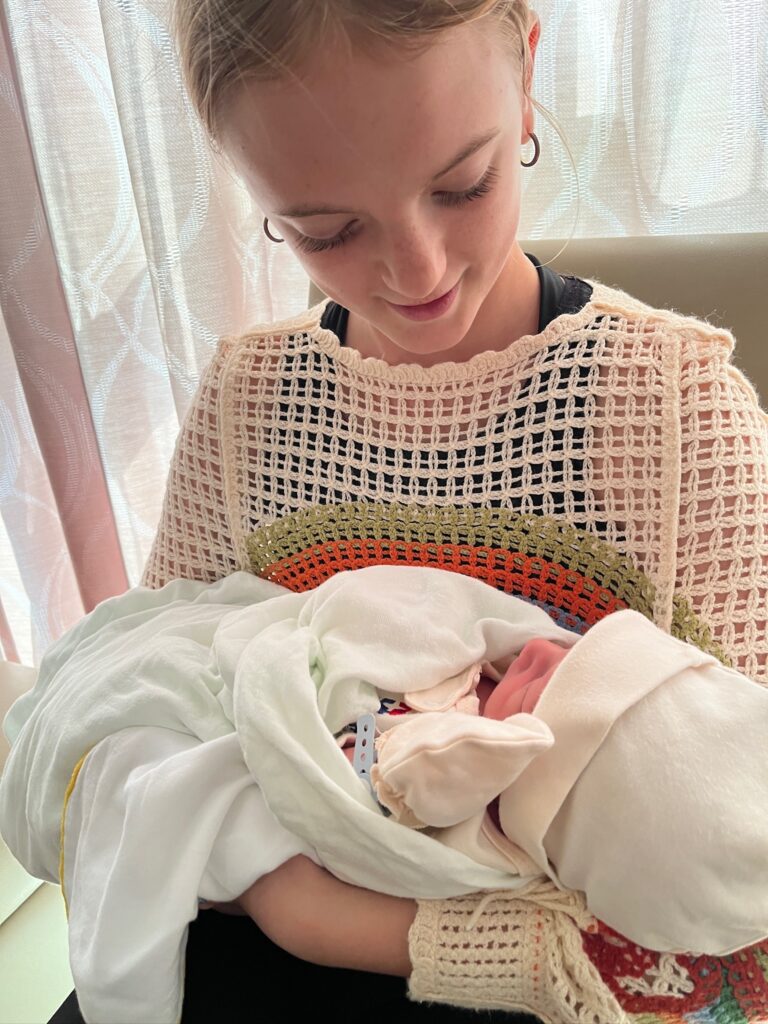
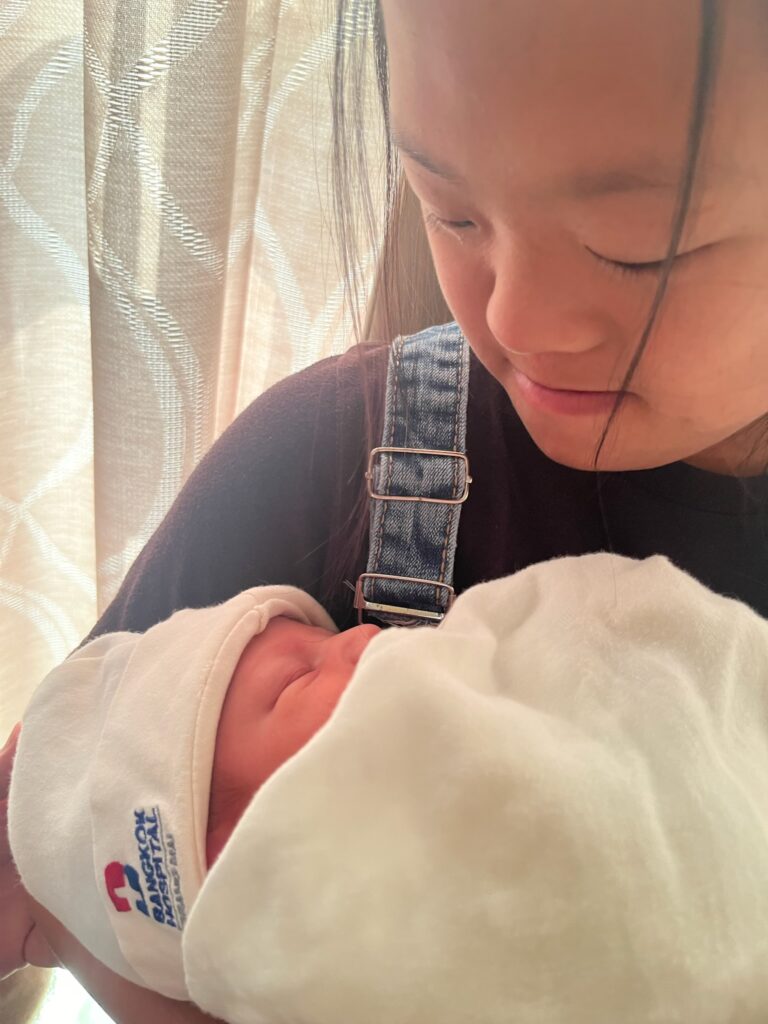
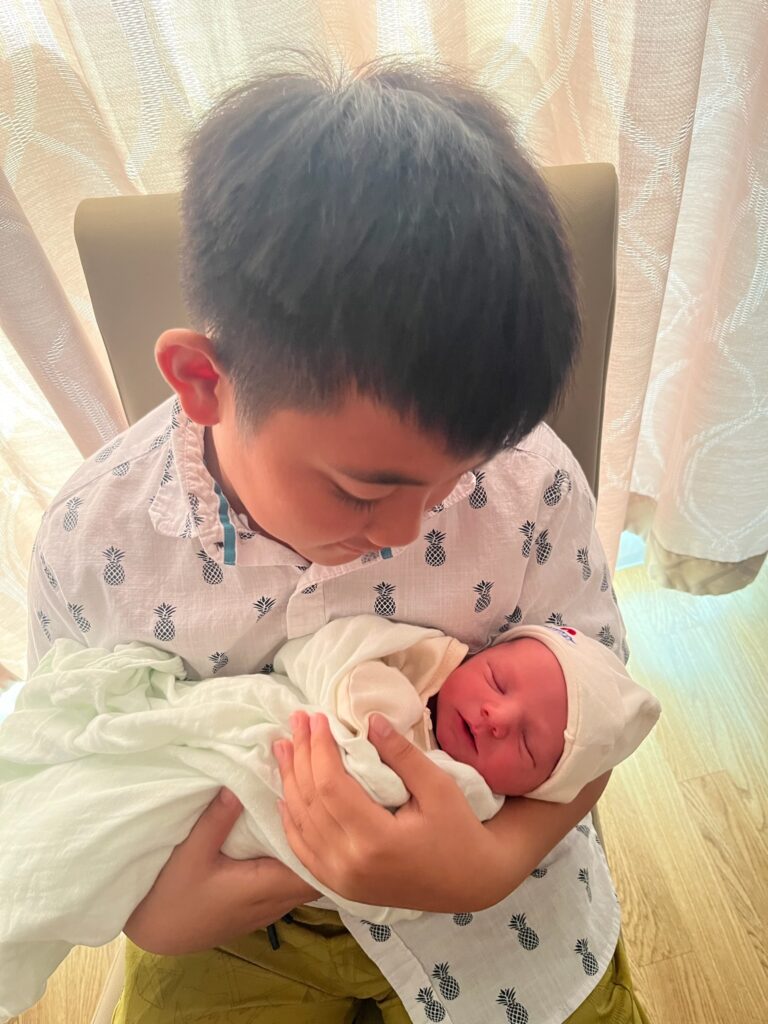


-
After 12 Days of Christmas: Epiphany!
As a grown-up, I don’t think I’ve ever taken the Christmas decorations down before today, and that was true before I knew Epiphany was even a thing. At first, I’d say it was just me dragging my feet about allowing the “most wonderful time of the year” to end. As far as it depended on me–I declared by lingering decorations–we would have our full 12 Days of Christmas even if the rest of the world around us was ready to move on into New Year’s Resolutions involving less clutter and fewer cookies.
The New Year celebrations in Thailand overshadowed Christmas, almost swallowing it up: the numbers 2024 were displayed in red and green almost as if it were synonymous with “Merry Christmas.” There are plenty of Christmas decorations around Chiang Mai, in keeping with the city’s intercultural flair. The last time I was anywhere a Christmas tree had been erected, it was still up…and I like that. 2024 is the year of the dragon, a tradition Thailand shares with other Eastern cultures: the red and gold New Year décor blends right in with the glitzy glittery sort of Christmas décor that seems to be favored here. [Sidenote: I’ve probably seen more of the puffy sort of tinsel garland this year than in the past 20 years of Christmases in America combined. It reminds me of my Grandma’s Christmas tree in the late 80s/early 90s…you know, around the same time in history that we rolled our jeans at the ankles so they poofed out like MC Hammer pants.]
Yes, our Christmas tree is still up. Christmas was truly lovely in all the most important ways for us this year. We had a joyful celebrations with the ZOE family, and hosted a Christmas party for the ZOE Child Rescue Team.
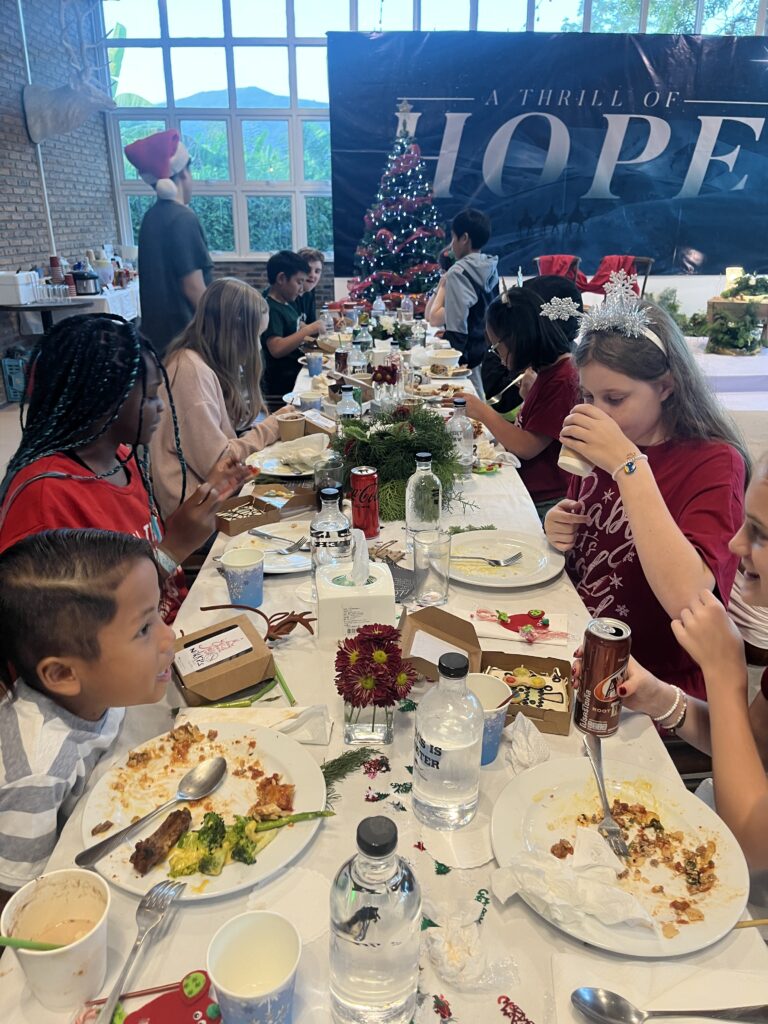
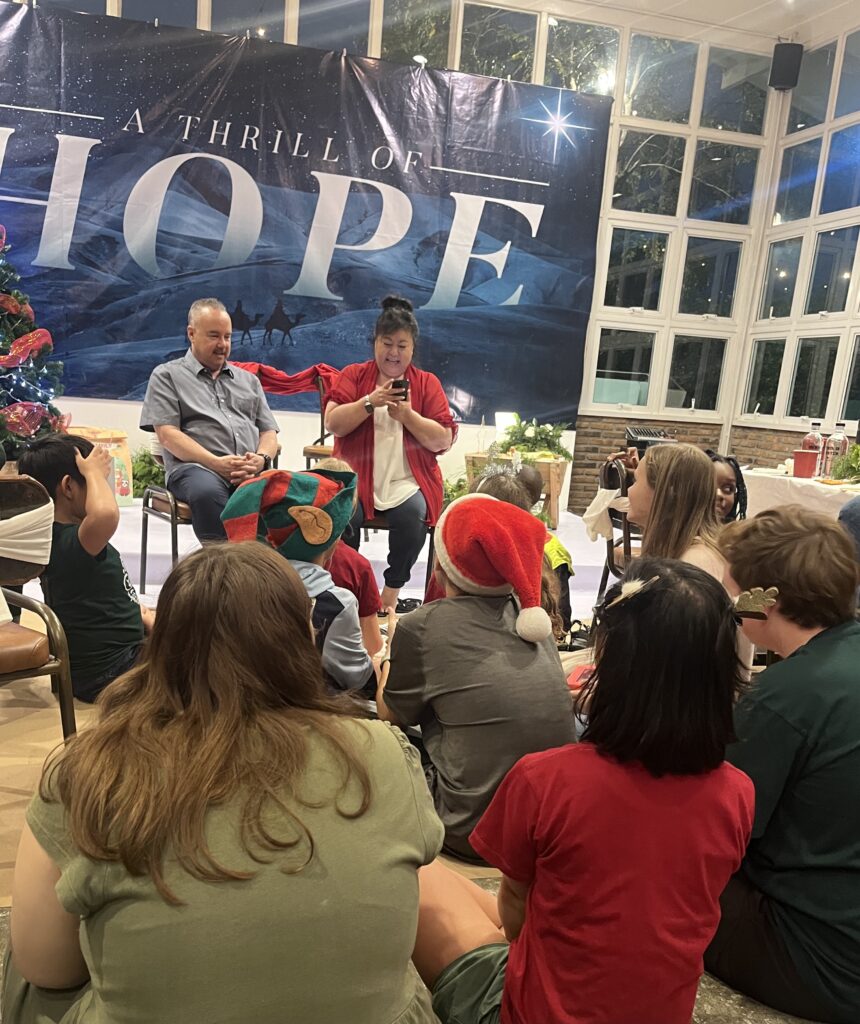
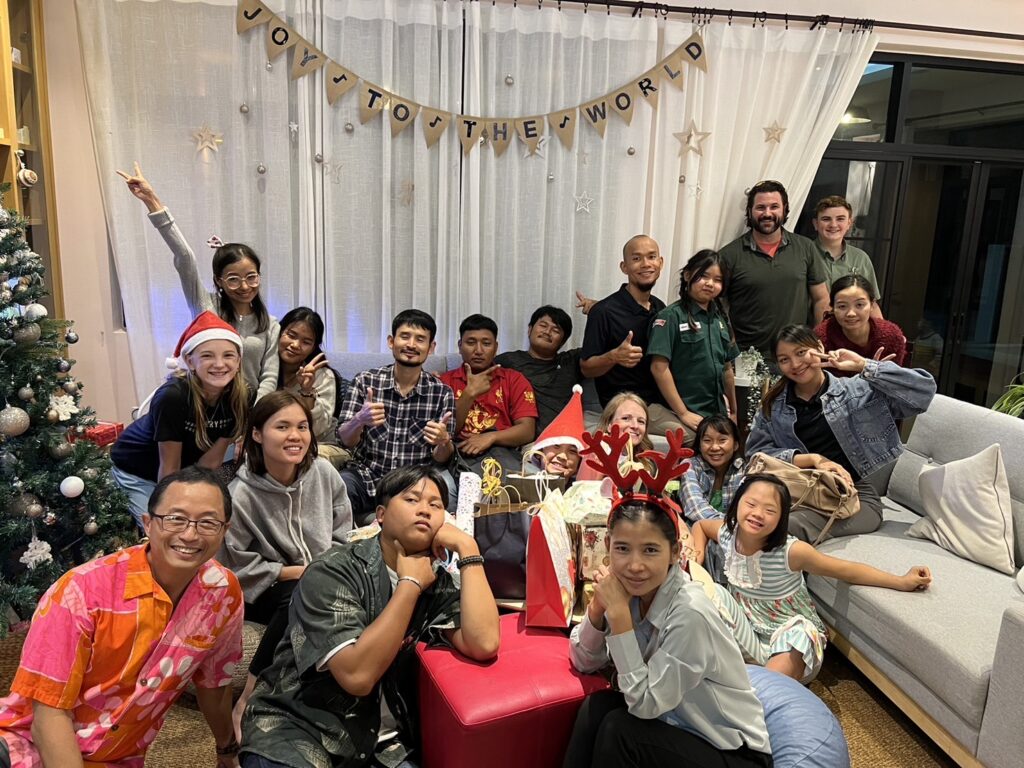
At our international church service, we heard scripture read in a multitude of languages I didn’t know existed and worshipped with believers from all over the world. We took our annual Christmas church service photo in front of palm trees instead of a Christmas tree, void of fancy dresses or sweater vests.
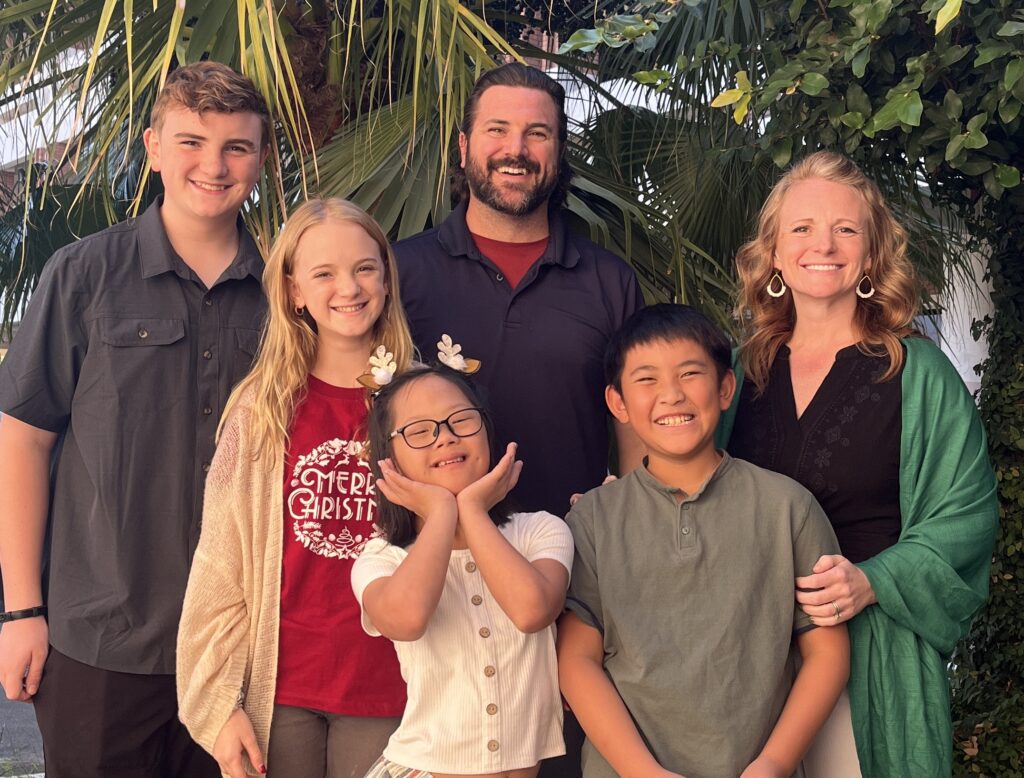
However, I admit the coziness of the days between Christmas Day and News Year’s Day left me wanting. I still snuggled under my “Joy to the World” blanket, drank my coffee hot (even though iced is more appropriate to the climate), and tried to bask in the glow of the Christmas tree in our living room for some heavy hours of reading and reflecting. But I missed my fireplace, the snow outside, the sound of the wind howling, and reddiwhip to put on my coffee.
I was today years old when I really realized just how culturally bound my “feeling of Christmas” has always been. Snow wasn’t a part of the first Christmas. There was no bedazzled Christmas tree beside the manger. Stockings weren’t hung by the chimney with care on the night Jesus was born in the stable. Of course I knew that … and yet those things have always been a part of how Christmas “feels” to me. Realizing that, Epiphany carries new weight for me this year and is more beautiful than ever before.
Traditionally, Epiphany is the day the church has set aside to remember the wise men coming to Bethlehem to find “he who has been born king of the Jews” (Matthew 2:2). The wise men came from the East. I am a Westerner, I think according to Western ideas and have been shaped by my Western culture. I now live in the East and am daily becoming accustomed to Eastern ideas and the deep-seated customs of Eastern culture. The men who came to find Jesus came from this side of the world. Buddha walked the earth hundreds of years before Jesus and so I wonder: were the wise men schooled in Buddhist thought like the kids here in Thailand are today?
The wise men were astrologers or magicians: wealthy men who accurately discerned a message written in the stars. They came to worship, but they were not Jews waiting for their Messiah: they were Gentiles from a foreign culture, with totally different ideas, practices, traditions, and culture. A lifetime of astrological study, a very long cross-country journey, and their diligent search for one bright star culminated as they “rejoiced exceedingly with great joy” over finding young Jesus (Matthew 2:10). They bowed in worship to a tiny king and lavished gifts upon him (Matthew 2:11). This wasn’t at the manger, but I am glad the wise men are a part of our nativity scene anyway…we need them in this story.
After the gifts were given and received, the wise men’s part in the greatest story ever told just ended: in a quiet, anti-climactic finale we are told they chose to “return home by another way” (Matthew 2:12). The wise men’s experience of Christmas brought exceedingly great joy and—also—complex feelings of a darker nature (fear? Anxiety?) that caused them to act in caution and secrecy. When they chose to “return home by another way” they were choosing to disobey the local government official’s direct orders (see Matthew 2:8). This, in part, led to the “Massacre of the Innocents:” the tragic deaths of so many innocent children at the hands of a power-hungry government. And so Matthew’s account of the Christmas story ends with weeping and lamentation that could be heard miles away (Matthew 2:18).
I scanned the Christmas accounts for emotive sort of words that give us clues to how that first Christmas may have “felt.” Here are a few of them, in no particular order: shame, resolve, contemplation, fear, rejoicing, great joy, warning, lamentation, weeping, refusal to be comforted, greatly troubled, fear, power, holy, wonderful, blessed, rejoicing, exaltation, mercy, great fear, great joy, haste, wondering, pondering, glorifying, praising, peace, marveled, give thanks, “and a sword will pierce through your own soul.”
Christmas is beautiful, as we celebrate our God who took on flesh in the most extraordinary way through the most ordinary of miracles. Christmas is complicated, for all the same reasons and more.
The celebration ends, after 12 days of Christmas, with Epiphany. Epiphany recognizes that Jesus is a gift not only to a specific people, but a gift unto all the world. The celebration of the coming of our LORD is one that transcends culture, and it has done so from the very beginning. Upon entering the world, Jesus radiated love so bright and so bold that the whole world could see. Those wise men from the East traveled far in search of the glory of God with lavish gifts and hearts of worship. Jesus came for the children of Israel AND for those in the East. He came for you. He came for me.
-
Simple Joys, Learning from the Birds.
We have an Acerola Cherry Tree. We didn’t plant it. We didn’t know it produced fruit. When it did, we had no idea what fruit it was. Thanks be to google, we now know our home to be equipped with an Acerola Cherry Tree.
They aren’t like any other cherry I’ve ever tasted. Somewhere between the flavor of a tart peach and maybe a crabapple crossed with a grape, yet with the texture of a soft plum, shrouding three triangular seeds, and encased in a vibrant red color, these little delights are delicious to snack on. I often grab a handful whenever I see their spectacular reds contrasting against the even toned green leaves surrounding them like ornaments on a decorated Christmas tree.
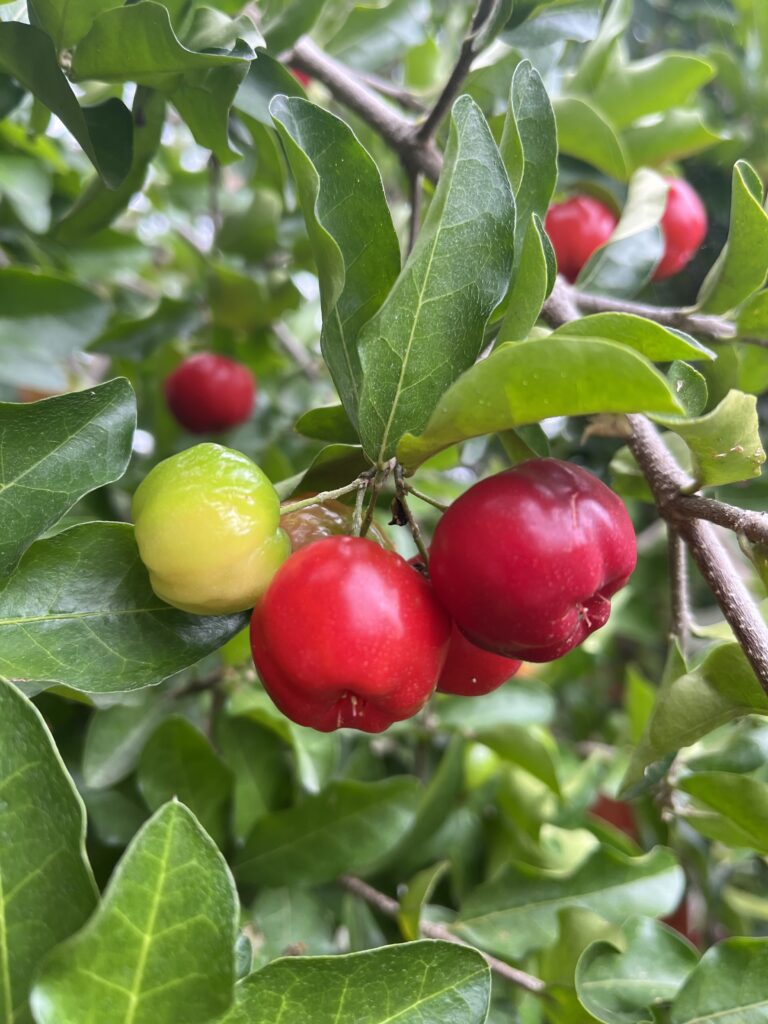
I dove into the depths of the interwebs, trying to identify this mysterious fruit tree in our front yard. Not quite a cherry, but also not a crab apple, how does one begin to search when the identity is difficult to describe? But google didn’t let me down. I learned some impressive facts about these little beauties. The Acerola Cherry is PACKED with Vitamin C. One cup of these sweet nuggets has the same amount of Vitamin C as THIRTY cups of oranges. Take that Florida! They also have a significant amount of antioxidants to help ward off….er….oxidants.
The little factoid that I didn’t expect was their shelf life. They last maybe two or three days being the reason you probably won’t ever see them in a store. A couple days. That’s it. I thought it was the birds stealing my snacks, but the reality is, those cherries just need to be eaten when you see them. You mustn’t wait or you’ll miss out. Maybe the birds know that too as I’ve seen plenty of red in the morning and not a cherry to be found in the afternoon. While that seems depressing, the reality is, this tree continually produces more and more cherries. I’ve picked the tree clean one day and harvested a heaping bowlful the next afternoon.
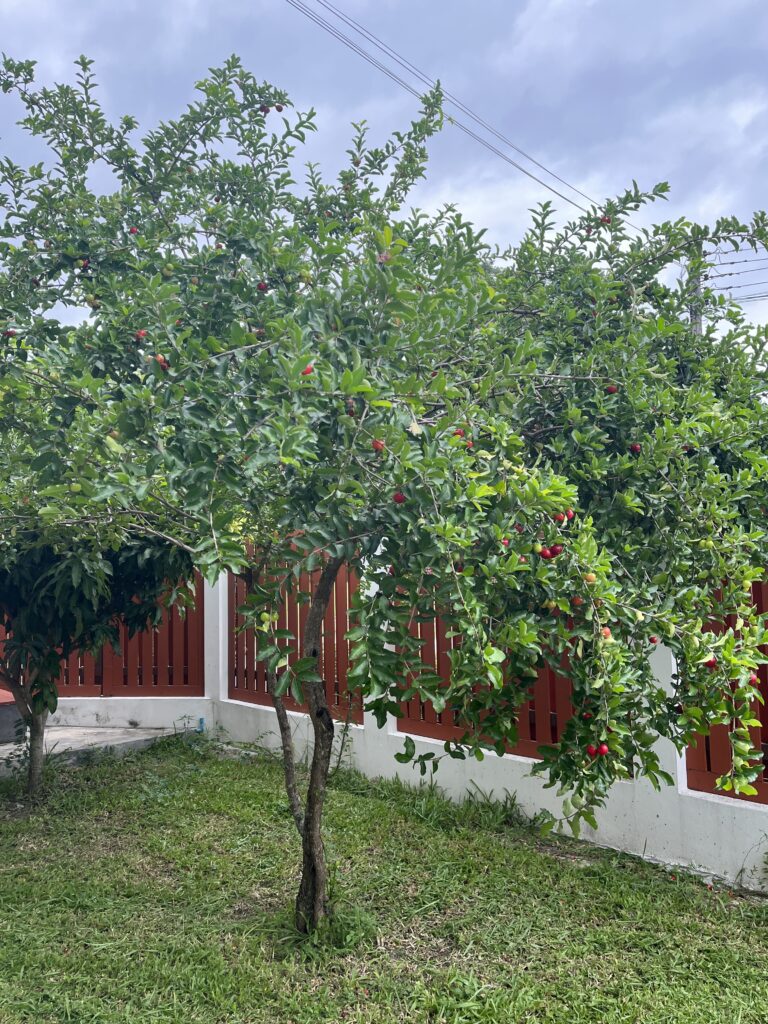
Having grown up on the heart of farm and ranch country, I’m all too familiar with the cycle of planting, tending, harvesting and canning. Harvest comes but once a year. A late frost, a stray hail storm, heavy rains, droughts, and the like, all drastically impact that one time of year where all hands are on deck to collect and store the bounty so we can enjoy it until next year. A continually producing tree seems more reminiscent of the Garden of Eden than anything I’m familiar with from my past.
When the Israelites meandered through the desert, the Good Lord provided daily manna (keyword: daily). They collected in the morning, enjoyed it through the afternoon and started the process again the following day. Some Israelites didn’t like the idea of a daily harvest. Apparently it’s too much work. Being lazy-minded yet disguised as prudence, some tried to store several days worth only to discover the manna didn’t keep. Maggots and worms rotted the daily bread, requiring the chosen folks to make a choice every day: harvest and eat, or sleep in and starve.
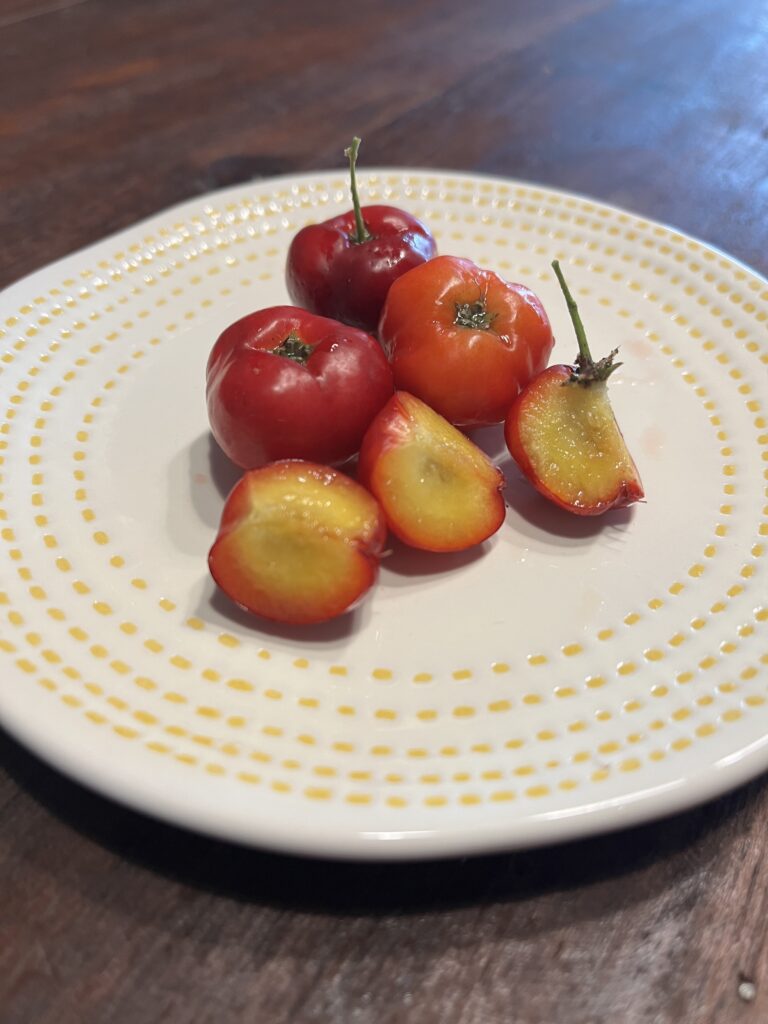
The parallels between mysterious manna and my mysterious cherry-like fruit are readily at hand. The Lord provides daily. And like those “prudent” Israelites, I can dupe myself into thinking I can get my fill of Jesus in bountiful harvests to last me through the week, month, or year. The reality, however, is Jesus is my DAILY bread (daily cherries). His unique flavor, subtle yet contrasting beauty, and necessary nutrition are experienced daily. As good as flavor can be, it is a fleeting experience. Once it’s gone, it’s gone. To experience the nuance, depth, and specific characteristics of any flavor, one must consume the food again to relish in the experience.
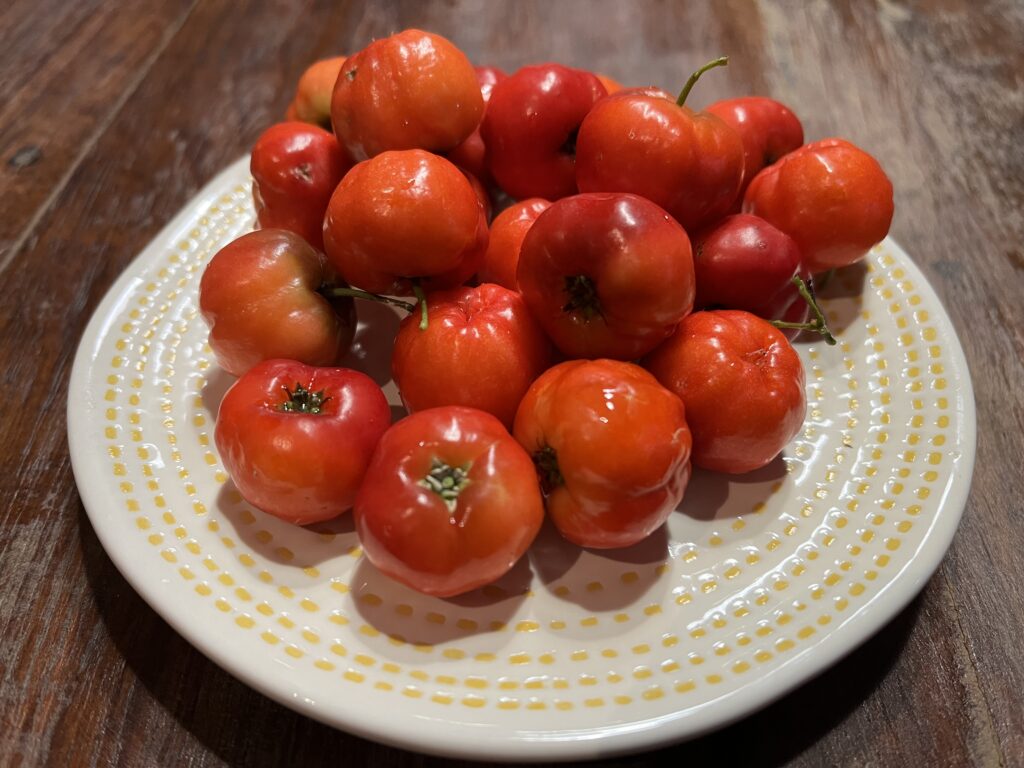
Jesus is all around me, inviting me to partake in his simple joys. Those subtle flavors of His goodness, His mercy, His grace, joy, love, peace, and tenderness are best experienced daily rather than periods of abundance and famine.
I’m okay sharing with the birds. God feeds them daily too. Why shouldn’t we both eat from a life giving tree? Maybe my winged friends know more about daily bread than I do.
-
Dance, Friends, and Fun!!😁
I went to a camp called Discovery Youth Camp. The camp was hosted by people who came from Hong Kong to Chiang Mai. The camp started and 8:30 a.m. and ended at 5:00 p.m. every day for one week. In the morning, we went in for worship and a message.✝️
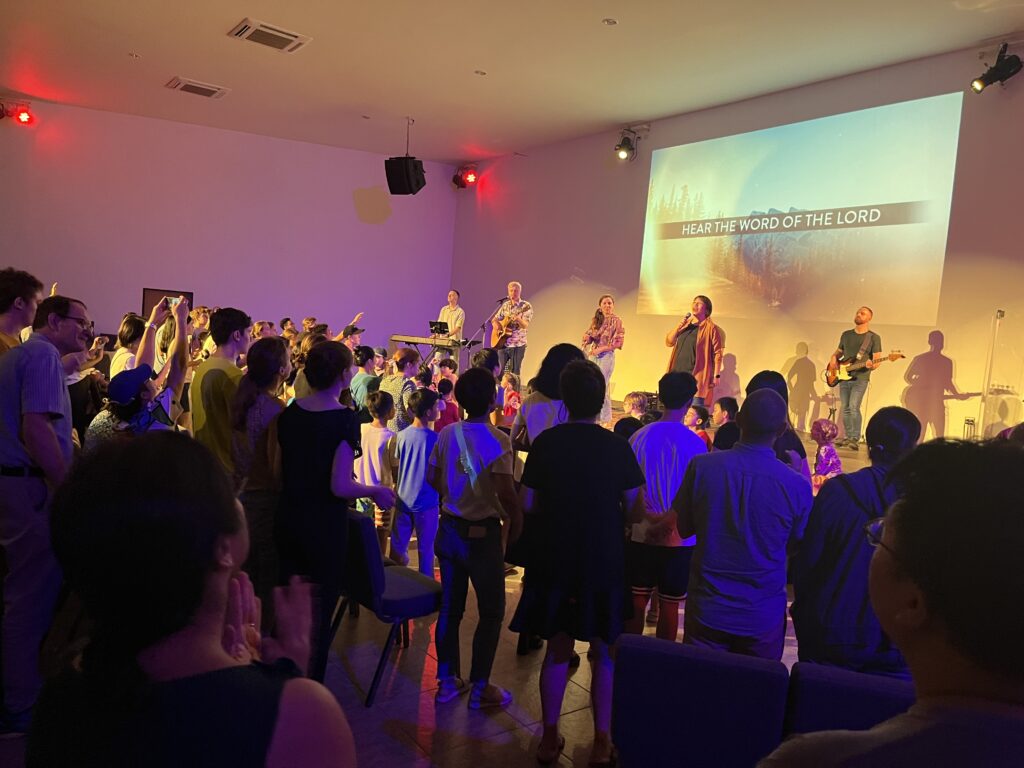
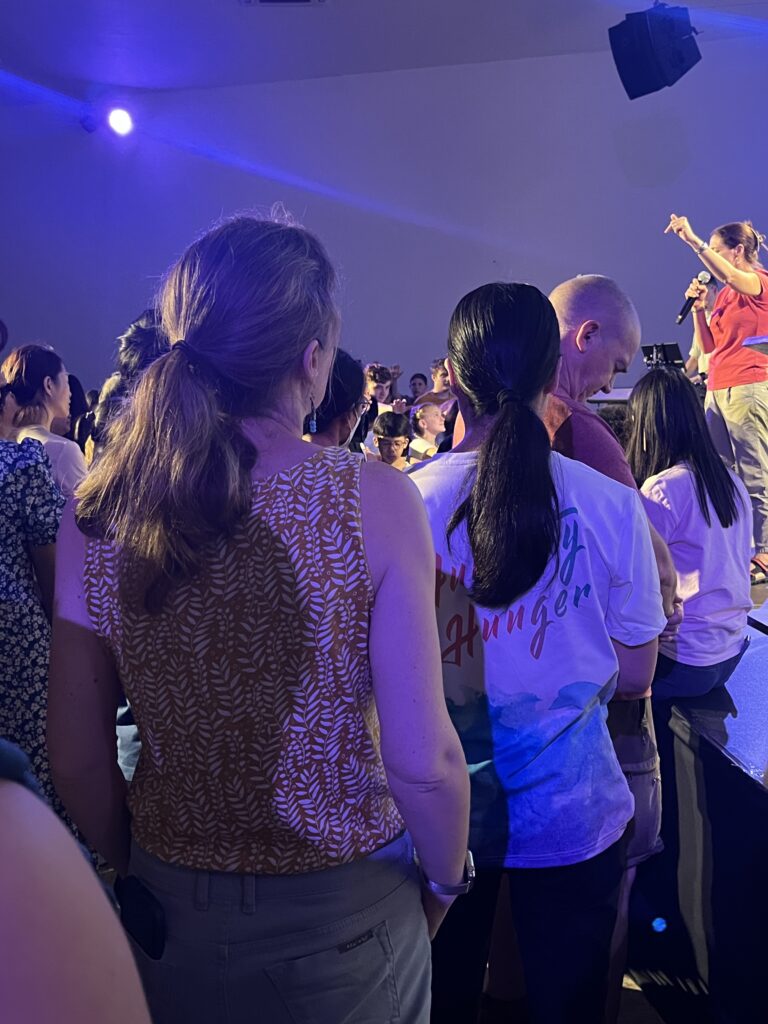
After worship we had a snack that was usually watermelon and yogurt with cereal in it. Next we came back inside and divided into groups. Before the camp started we got bracelets with different colors to tell you which group you were going to be in. I got red. In our groups, we talked about the message and got to know the people in our group. Then we would head back outside for lunch. For lunch there was always something spicy, something not spicy, and rice. After lunch we had free time, though for me free time was just waiting for free time to be over to we could do breakout sessions😏. The breakout sessions were by far the best part of camp!
The breakout sessions were the reason I wanted to sign up for camp in the first place! When we signed up for camp, we got to pick which breakout sessions we wanted to do. There was drama, vocal training, worship band, and urban dance. Obviously I picked dance!😉 The dance was really fun to learn and really fun to perform. The teacher was a man from Argentina who was a competitive dancer. It made me feel special that he put me in the front of the formations and gave me a special part! Here is a video ⬇️ (I am the one in the braids):
(If you like this video, please make sure to give it a thumbs up and subscribe to our YouTube Channel!)😋
After the first breakout session, we would eat another snack (this one was usually just a bag of chips and a juice box) and then we would head out to our second breakout session. Instead of the same breakout session every day, this one was different every day. The first day I did arts and crafts, the second day I did bracelet making, and the third day I did arts and crafts again. I was expecting to do the same craft both days but the last day we actually did a different craft so I was lucky.
That’s how it went for the first three days, but the last two days were a bit different. On Thursday, we watched a movie instead of our breakout sessions (I personally would have rather done breakout sessions but it wasn’t my choice). That night we stayed for dinner and a worship concert. I was able to invite friends and all of these friends were able to come with me!
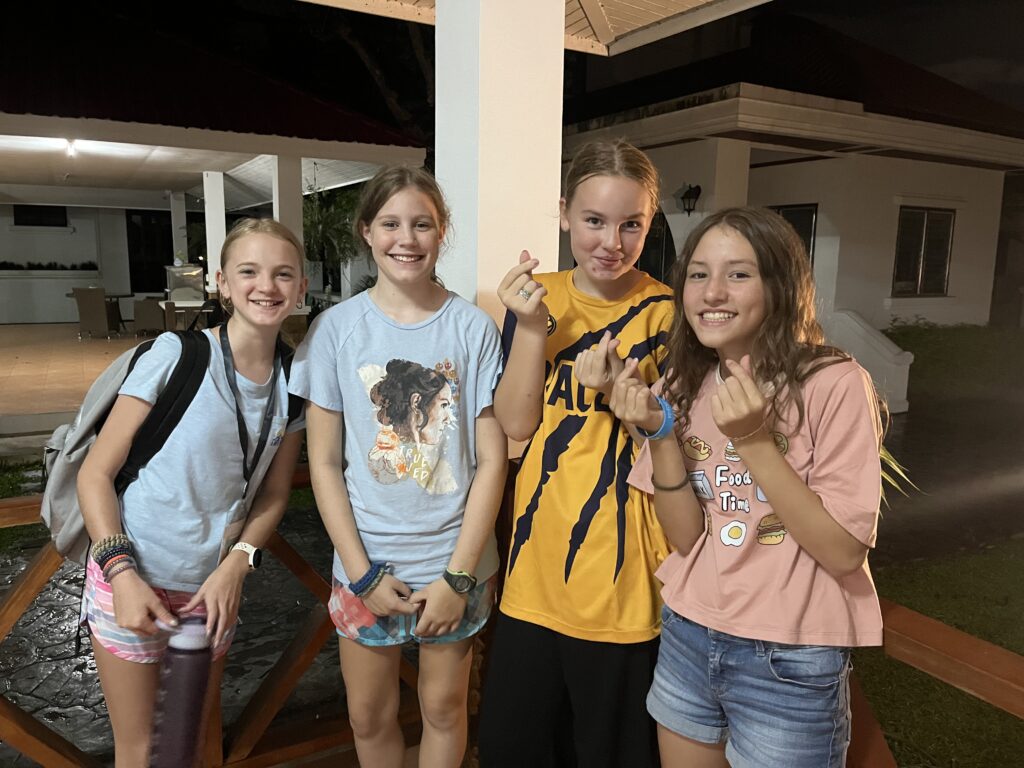
On Friday afternoon, we did rehearsal for the show. On Friday night, my family and friends came to watch me perform (that’s why I have a video that you saw earlier). These are the people that came to my show!
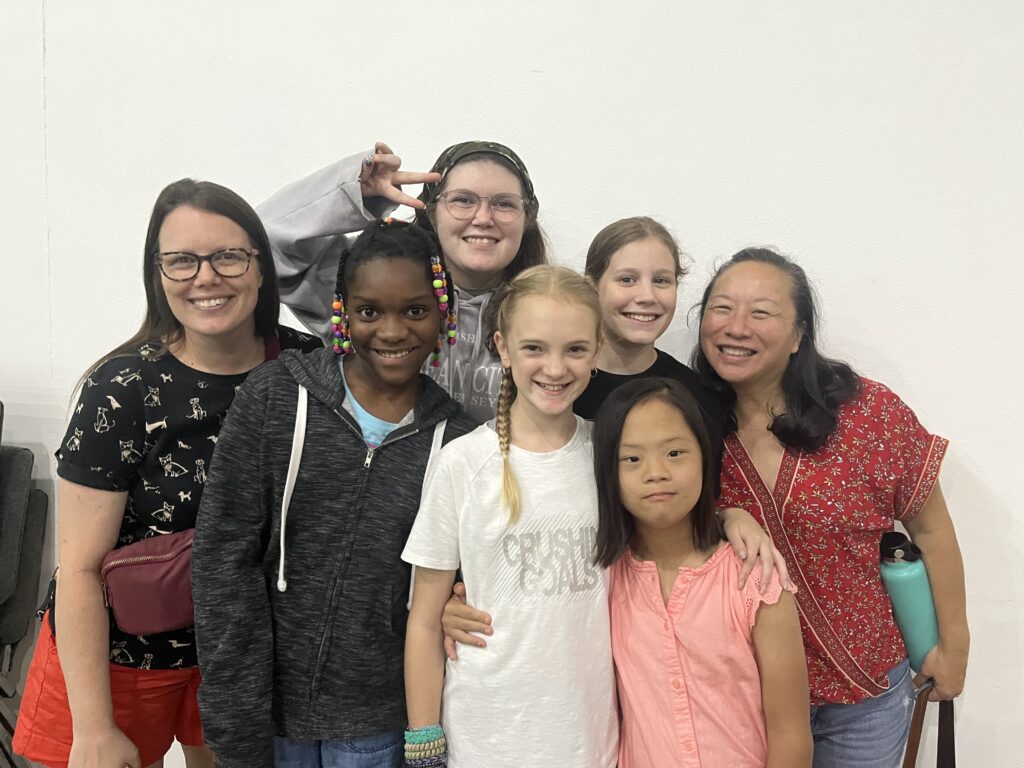
I had a lot of fun at camp and I am really glad I went. I think my favorite part was performing since I haven’t performed in awhile and I LOVE doing it!!!😍 But I also think that one of the coolest things about this camp was that about 75% of the kids who came to camp were from another country where they aren’t supposed to worship God. When I asked people were they were from, I found out that some of them came to Thailand just for this camp. Even though English is their second language almost all of them were fluent in English: FLUENT to the point where I couldn’t even tell that English was their second language! Even the 8 and 9 year olds! That really inspires me to work on my Thai so that maybe some day will be able to speak Thai like they spoke English!
-
Lay Down Your Old Chains. Pick Up Your New Name.
It’s still June. You’d have to be living under a rock at the depths of the Mariana Trench to not know about Pride month, which in essence is an entire month dedicated to identity. While I have plenty of opinions on the merits or lack thereof regarding an entire 30 days dedicated to the discussion of orientation, I’m more drawn to the idea, the concept, the value of identity and its implications on our individual lives.
Several years ago, I pondered the impact of a name. When something inanimate, or even a typically mundane creature gains a name, the level of importance, value, and dignity changes. A dentist hunted a lion. No one cared. But that lion had a name: Cecil. And suddenly he wasn’t just a feline anymore. His death subsequently gained worldwide attention when before we’d be hard-pressed to think of any other time a lion was hunted became noteworthy. A law in Colorado is referred to as the Samson Law because an archery hunter killed an elk. Not just any elk, an elk named Samson. I ruminated on the idea of abortions and what their prevalence would be if we first called the “clump of cells” Rebecca, Stephen, Megan, Quinton, or Sarah. Would we toss their small bodies in trash cans if they had names? I’m not certain we’d be so cavalier about the procedure if we named the “fetus” before executing them.
What is the value of a name? If you have kids, think about how difficult it was to name them. How many names did you discredit because of negative experiences associated with a person bearing that same name? In many cultures, names are given or changed later in life to further describe the character or calling on the individual. Simon became Peter. Saul was renamed Paul. Here in Thailand, people are often given names but later given nicknames that help define who they are. A translator I knew was nicknamed Shopping because after a rather abusive and demoralizing encounter with his father, his mother took the young boy to a mall where the big letters SHOPPING were displayed above and whispered in his ear, “Someday you will be as big as that mall.” She was trying to keep Shopping from identifying himself as the victim of abuse and to call him to rise above it into something great.
Our names convey identity. We all want to be known. We’re in a constant state of tension between wanting to stand out and yet not be alone. We want to belong. We carry the burdens of past labels: whether someone had spoken them aloud or they were descriptions we placed on ourselves. We’re in a never-ending battle to overcome those false identities. Do we believe we’re stupid, incompetent, ugly, childish, insignificant, or afraid? Where do those identities come from? Why do we think those thoughts and believe those identities? Are they even identities in the first place? Have we elevated a lie and given it authority to define us?
It seems so many self-imposed identities are not identities at all. We drop a plate and suddenly we’re clumsy as if we’ve never been able to carry a single object without breaking it before. We make a mistake in a 4thgrade spelling bee and suddenly we identify as stupid. Our bodies haven’t grown at the same rate as our peers so we believe we’re ugly, gangly, and unworthy. It’s remarkable really. Honestly, it’s so easy to see how others live their identity lies yet we’re blinded to seeing our own.
What if we had a given name? Not just a name our parents may or may not have labored in vain over. But a true identity given to us by the One who actually formed us? Is it possible that He who knows the hairs on our head cares about speaking our true name? The Great God of the universe, the One who SPOKE everything into existence. The One who devised the greatest caper of all ages to rescue those who could do absolutely nothing for Him by sacrificing himself on a Roman cross. That God, who took on flesh, walked this earth, dined with friends, laughed, cried, and told stories, is the God who speaks and calls us by name. Not the name on our birth certificate, but our real name. The name that conveys our true identity, the one He crafted.
What if we knew THAT name? What if we lived THAT identity? I asked myself those questions and honestly, the implications of the answers fired me up. If our great God who sent His only Son to lavish abundant grace on us calls me by name, why don’t I know it? Why can’t I hear it? It seems like a cruel joke. But then, what if I could hear it? What if I discovered and knew my given name? What if the God who speaks calls me by name and I actually hear it? What then? The excitement was powerful.
I believe we all crave an identity. Everyone. All of us. We desire to be known. We know we aren’t just another fish in the ocean, a zebra among a pack of stripes or bird in an indistinguishable flock. We’re more than that and deep down, we know it. But where does our identity come from? From ourselves? Are we sifting through personality profiles, feelings, and experiences? Are we trying to find our individual identity by placing ourselves into various groups, classes, orientations, clubs, and races? Or, is there a way to actually push through the noise, the junk, the lies, the hurt, shame, and chaos to find our true selves? If the God who created you as you and me as me, did so on purpose—with all our nuances, quirks, shapes, sizes, colors, and hair patterns the way He saw fit—is it too much of a stretch to think He actually has a name specifically for you? An identity? A real, authentic, and individually chosen identity?
I know mine. I just discovered it a few weeks ago. God didn’t just now give me a new name. It’s the name he gave me when He created me. It has always been there but now, I was given the tools to reveal it with intention. This discovery has transformed me. The transformation is not the same as going one way and now going another. Rather, it’s more like an expansion. Forgive me for the reference as it’s been years since I’ve seen the movie but maybe the experience is like Jim Carrey’s character in the Truman Show. His world was real inside that dome, but that wasn’t the real world. When he finally discovered there was more than what he’d always believed to be his whole world, things changed. He saw differently. He needed to see who he really was. But unlike a fictitious character in a marginally humorous movie, I have seen the lies, broken free, and found my true identity. I didn’t create my identity and it isn’t the one I would have chosen for myself. But it’s mine. Spoken to the deep crevices of my heart by the God who speaks.
I’ve been going to church all my life. I’ve heard all about having a “personal walk with Jesus.” I know about “praying without ceasing,” and “Love the Lord with all your heart, mind, soul and strength.” I’ve been taught to read my Bible daily and pray so I can be close to Him. But I’ve never understood it the way I understand it now.
Maybe our lives are disconnected, lacking purpose, blown around, and shallow because we haven’t been taught how to be known by the one who knows and made us. Doesn’t it stand to reason that if you can truly know God and experience being fully known, just maybe some power or entity who detests God would want to prevent that heavenly orchestrated relationship from flourishing? The same evil that rejoiced when Jesus died on that cross is the same evil who got his teeth kicked in three days later when the tomb was empty. If the Father of Lies comes to steal, kill, and destroy, what makes you think you’re not on his list of targets? Why wouldn’t he make you believe a lie and draw up an identity for yourself through your own power? The last thing he wants is for you to be known by the One who created you.
If any of this pings deep down within you, I’d offer a book recommendation that guided my transformation:
Click here to purchase “Living Fearless” by Jamie Winship.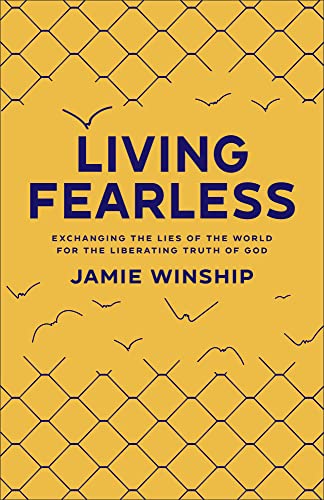
This is not a casual read but it isn’t some scholarly read for doctoral candidates either. Read it cover to cover over a dedicated course of a few days. Make the time to get away. Turn off your phone. Grab a notebook and a pen. Eliminate the distractions. When you’re done, I’d love to hear your name, that true identity given by the One who speaks.
Let’s lay down our old chains and pick up our new names.
(The title photo is just a beautiful photo I took on the beach in Penang, Malaysia where I read Jamie’s book and uncovered my identity.)
-
MORE IMPORTANT THAN A FILTER
I was explicitly told to by my manager at work to always relate whatever project I’m working on or the changes I’m suggesting back to the Scriptures. Let Jesus be THE authority, not Rodney Keim “The Missionary.” The Thai people by nature and culture, are very deferential. Even if they fully disagree with everything I might say, my position as a missionary from America, places me in a position of authority, whether it is merited or not. They might know a better way or have more experience than me, but they will very likely acquiesce to my position simply because their cultural upbringings tell them my status is greater than their’s. We as Americans don’t have a problem verbally battling for better ideas. However, observing our cultural differences is critical to moving forward as a team.
My job title at the moment is “Facilities and Agricultural Advisor.” My current role is to look over the property with fresh eyes and seek out areas of improvement, research how these improvements can be made, and make efforts to implement my research. An area I stumbled upon that didn’t look quite right was the tilapia and catfish farm. ZOE raises their own fish for consumption, but it hasn’t gone as smoothly as they had hoped. The fish have either underperformed, taken too long to reach consumption size, or simply died off. I have no training when it comes to aquaculture, but I do have a knack for spotting things that don’t seem on target. My first look at the fish farm tanks immediately piqued my curiosity as to a potential problem. The water looked like chocolate milk. A general rule I learned many years ago was “animals under stress don’t perform.” Regardless of the animal in question, if they are stressed because of poor handling, extreme temperature, the presence of pests, or low-quality environment, they simply won’t thrive. They won’t eat right or enough. They’ll get sick. The problems pile on top of each other ultimately leading to death.
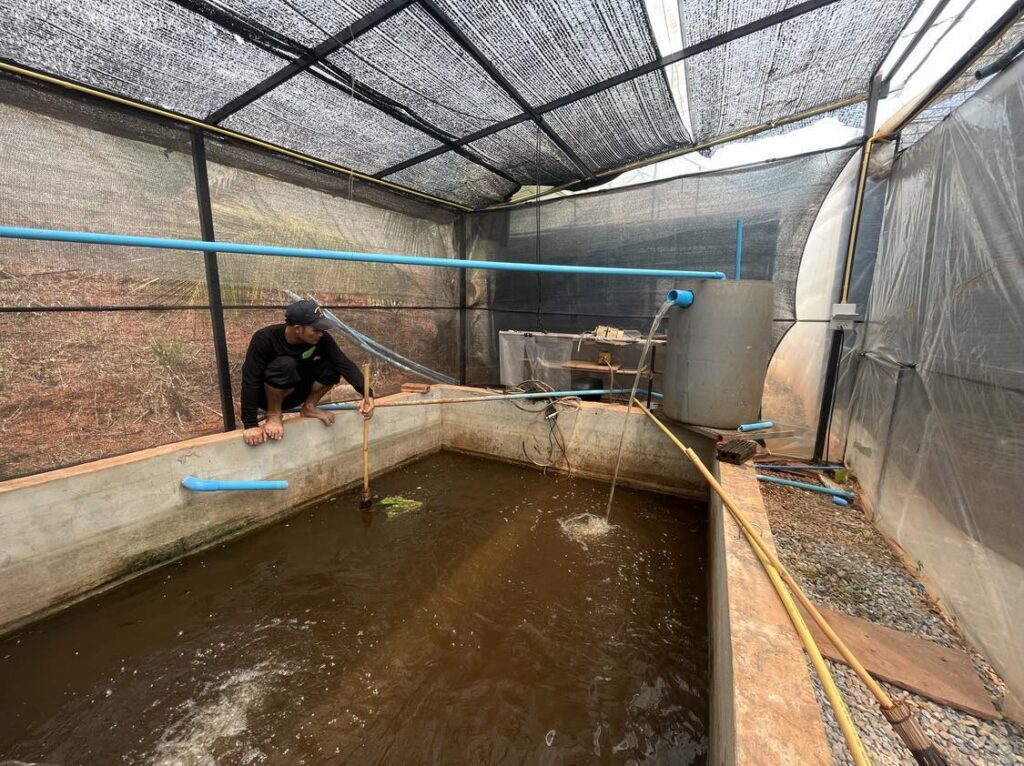
There are over 300 white and orange Tilapia in this tank. Where are they? I could have explained all my training to the Thai staff, but it likely wouldn’t have landed with the weight with which it had bothered my conscience. Fish in Thailand are raised in dirty water all the time. The large ponds and lakes around are all murky and yet people still catch seemingly healthy fish. Plus, they’re fish right? Who cares about a stupid fish?
Remembering my manager’s imperative to allow the Bible to be the supreme authority, I believe God sparked my creativity. I asked a couple of the Thai staff in charge of the fish farm to picture what the water looked like in the garden of Eden. When everything was made perfect, could they picture what type of water the fish were swimming in? Of course, they said the water was clear and clean. This isn’t a revelation. No one needs to be told what perfect water looks like. We all intrinsically know that water should be clean. Furthermore, I told them to think about the air quality we were experiencing. I asked if they felt healthy, strong and motivated to work. I asked if they thought the air in Eden was smokey. Again, they knew immediately it wasn’t. I explained how we all felt off-balance breathing the smokey air and knew we would feel better when the rains come and clean the air. Would it be hard to imagine that the fish would feel the same way, that the water they live in has a direct effect on their wellbeing like the air we breathe? The lightbulbs clicked on in their heads and got excited about solving the problem.
For less than $60 USD, we were able to build 2, double barrel fishpond filters utilizing a lot of materials already on hand. The one Thai staff member who has felt demoralized by the failures of the fish project, has had a renewed sense of purpose, taking pride in his work. He knows healthy water equals healthy fish, which in turn equals healthy food for rescued kids. He knows his area of responsibility is directly related to restoring trafficked kids and orphans. The pride I’ve seen swell in him as been a joy. He stands taller, smiles brighter, and looks forward to making his area look better. We’re still tweaking and adjusting the fish farm, but the Thai staff have a joy about the process which I hadn’t seen before.
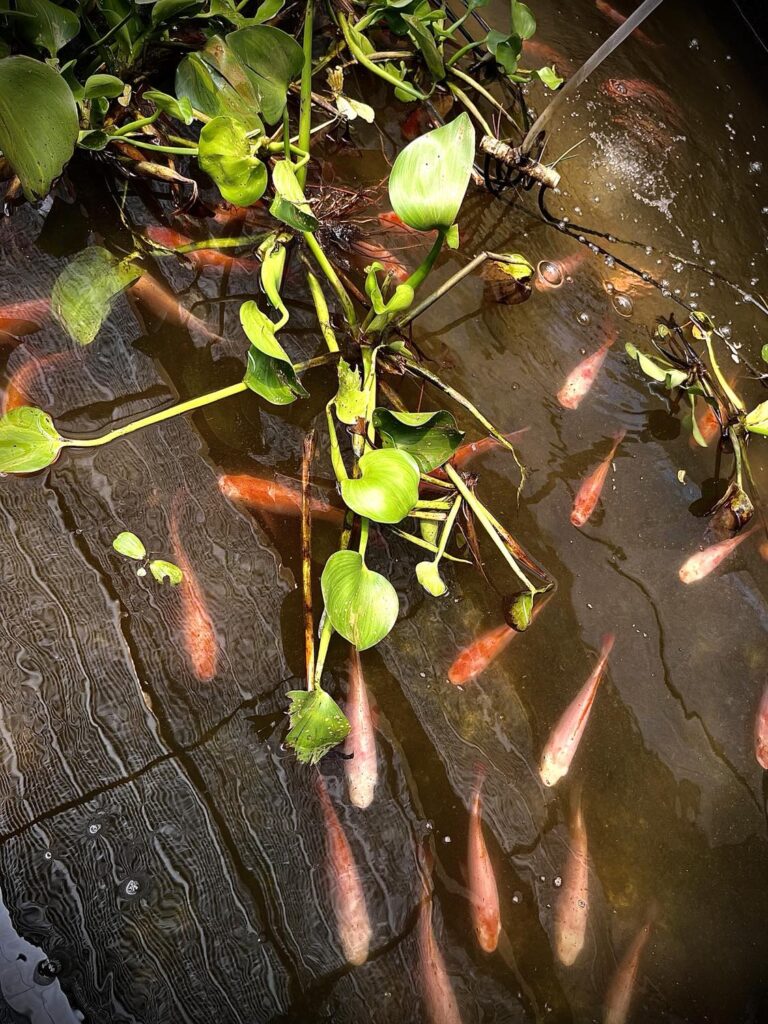
You can actually see the bottom of the tank which is more than 2′ down. Had I not been emphatically told to relate all my projects back to God, we still would have likely installed filters at my recommendation but the joy in my co-worker’s heart would most assuredly be absent. Could it be God cares more about His children’s hearts than fish? I think so. I’m slowly learning to do things His way, but learning nonetheless.
-
Bloom where you are planted.
There is a tree growing in the empty lot next to the home we are renting, and I love it. It has more flowers than leaves, and the color is striking against the blue sky.
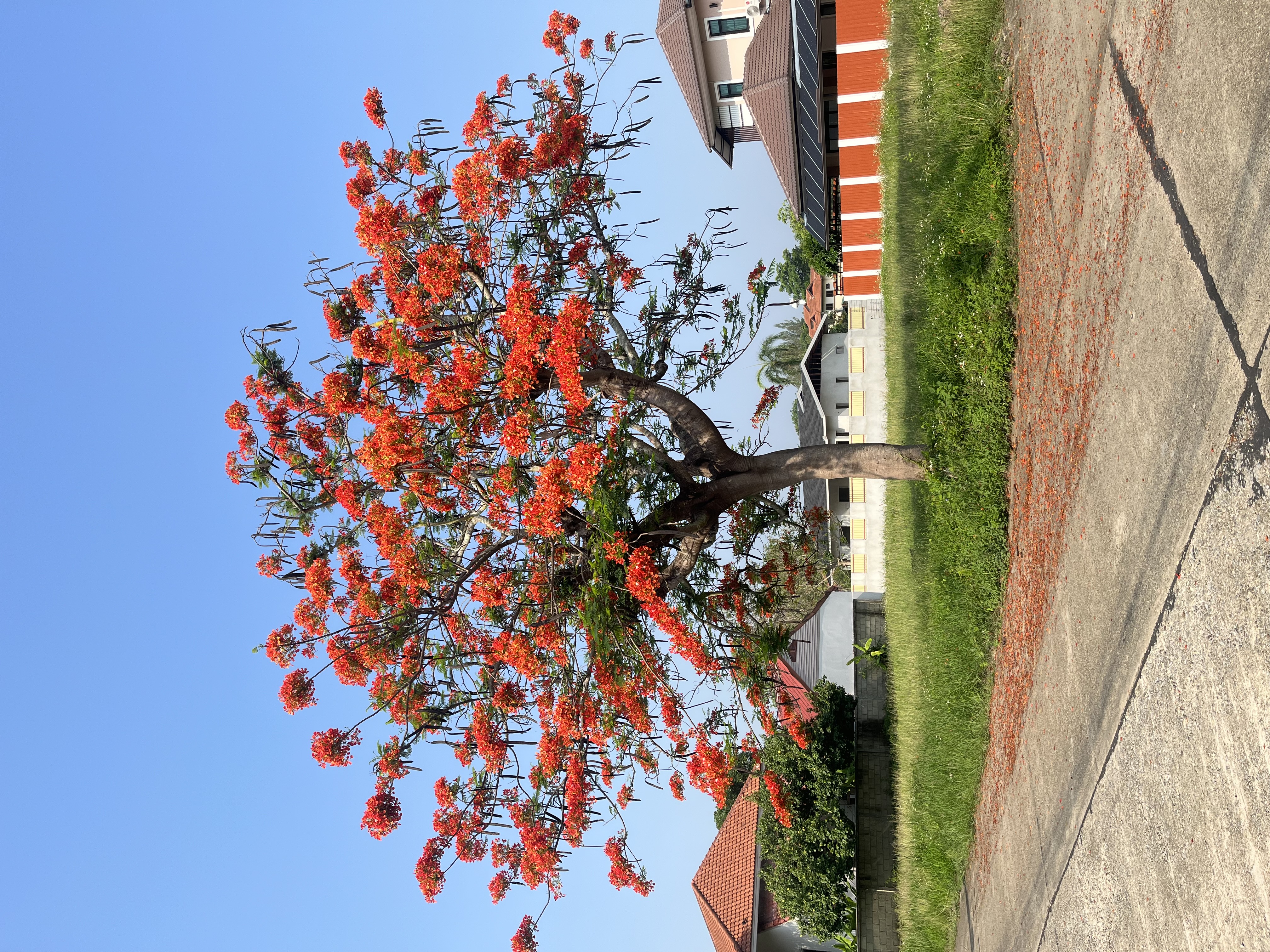
Trees like this one are growing all over our Muubaan (neighborhood), standing here and there to bless me each day on my morning “walkabout”. Last month, there were yellow trees in bloom. With the onset of rain and the appearance of blue skies, these orange ones now shine.
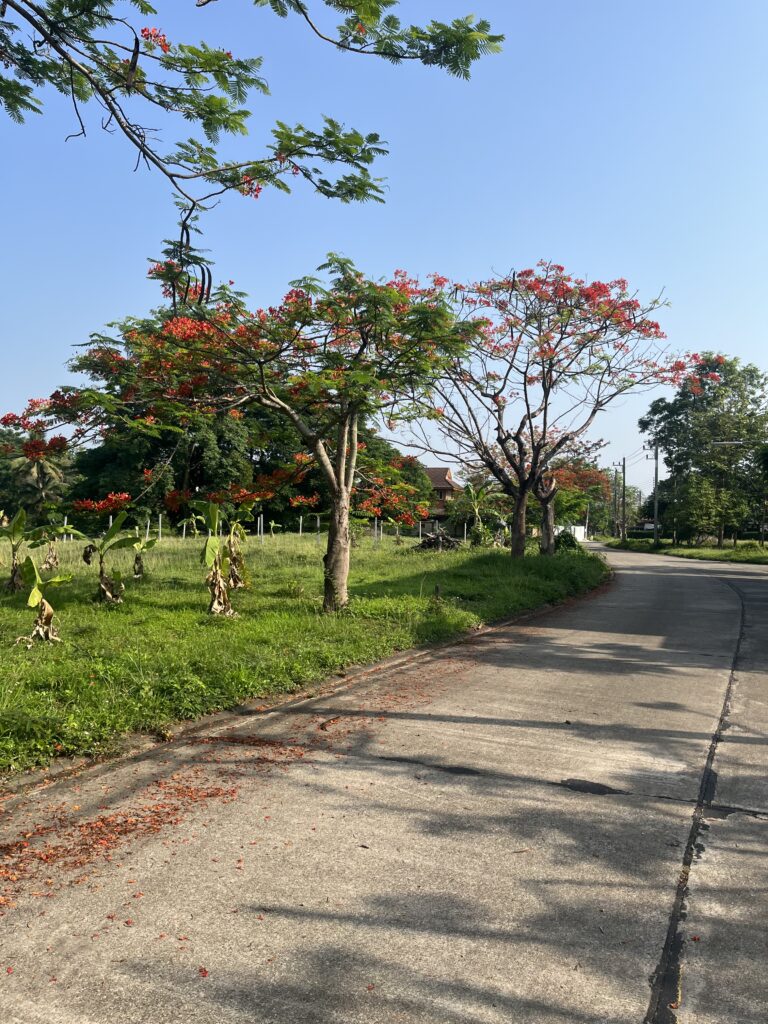
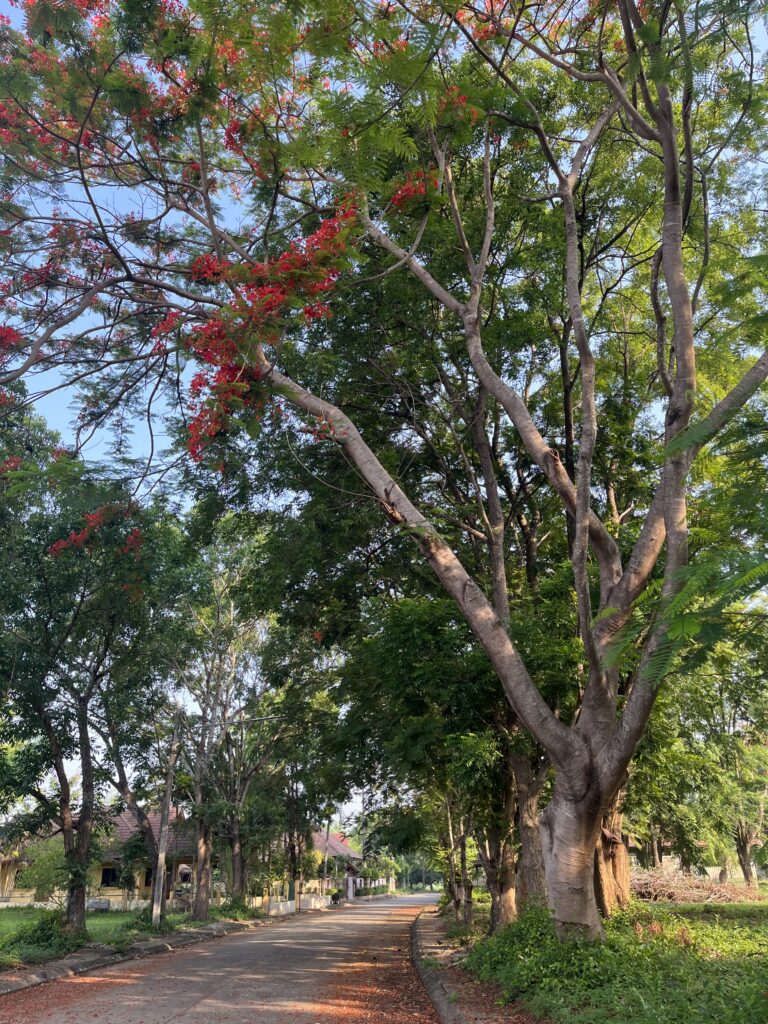
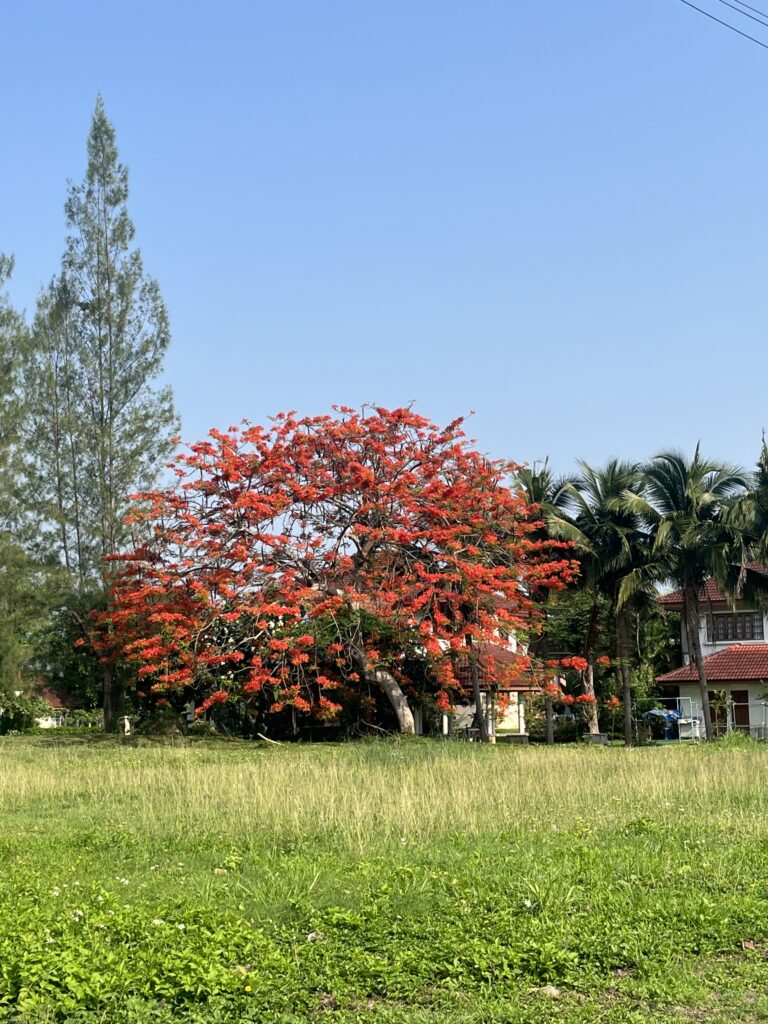
I have always been drawn to the simplistic beauty of the adage “Bloom where you are planted.” I like the idea of a master gardener placing each seedling right where He knows it will do best. I like that a tree’s job is simply to put down roots and keep reaching up. I like that the tree reaches for food, sunlight, and water but can do little more in the way of providing for itself.
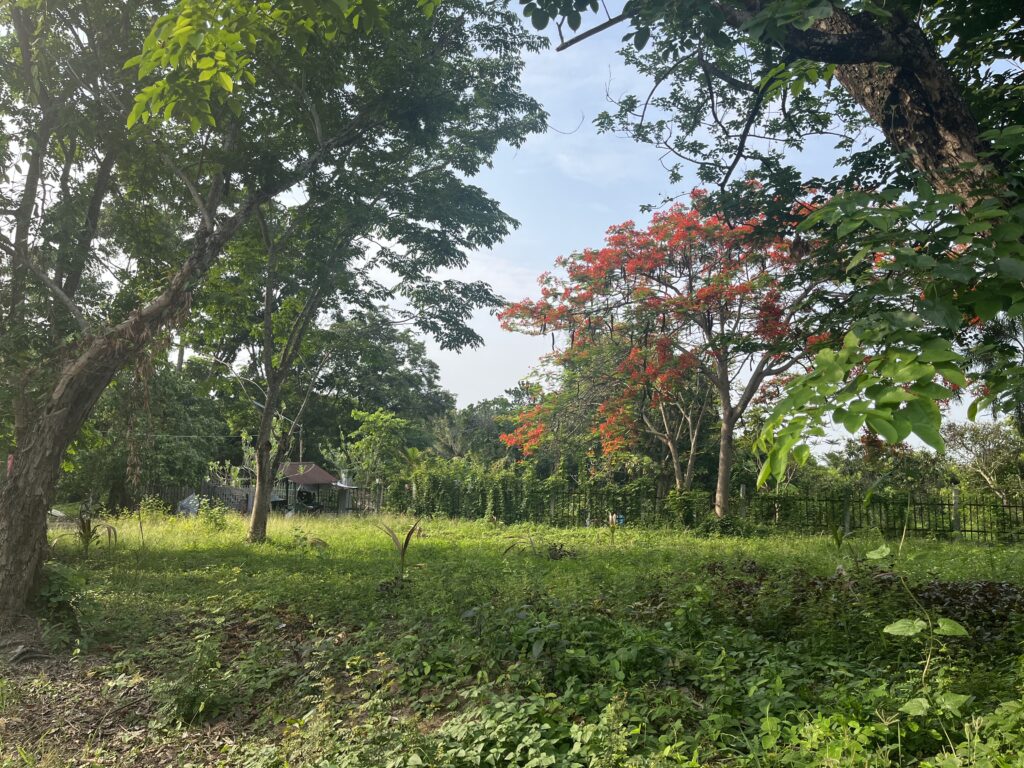
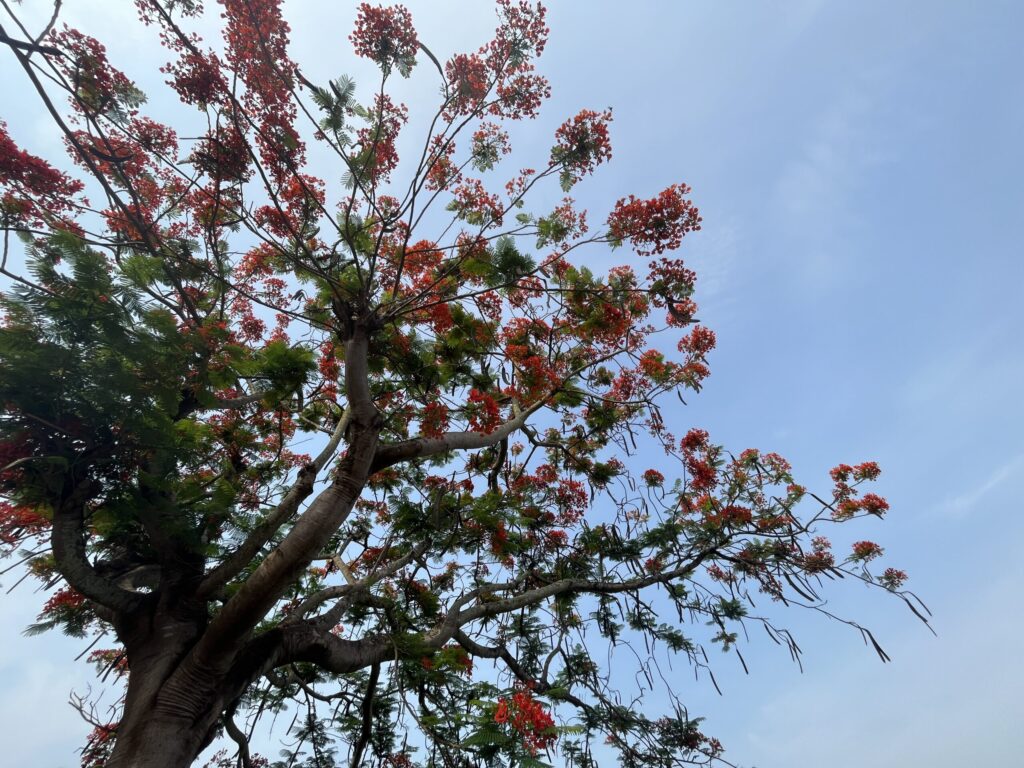
When Rod and I bought our first home, one of the things I remember stood out to me about the older neighborhood we moved into (as opposed to the newer subdivisions we visited), was the trees: they stood tall above the homes and shaded the roadways.
When we moved to the ranch, I fell in love with the ancient tree in the yard…
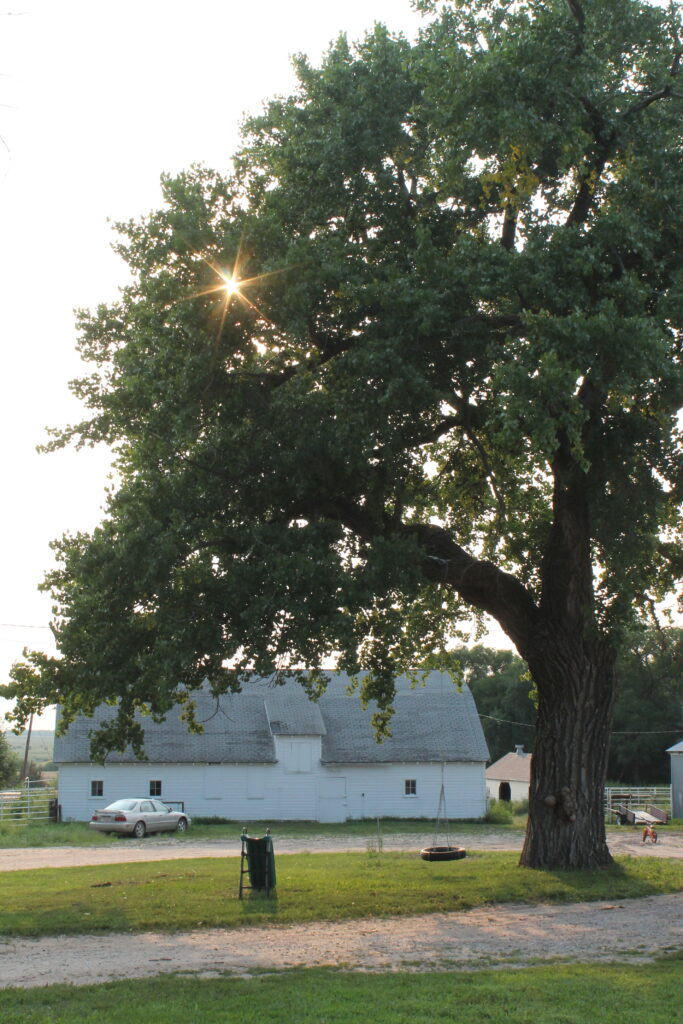
…the one with the baby raccoons and the tire swing.


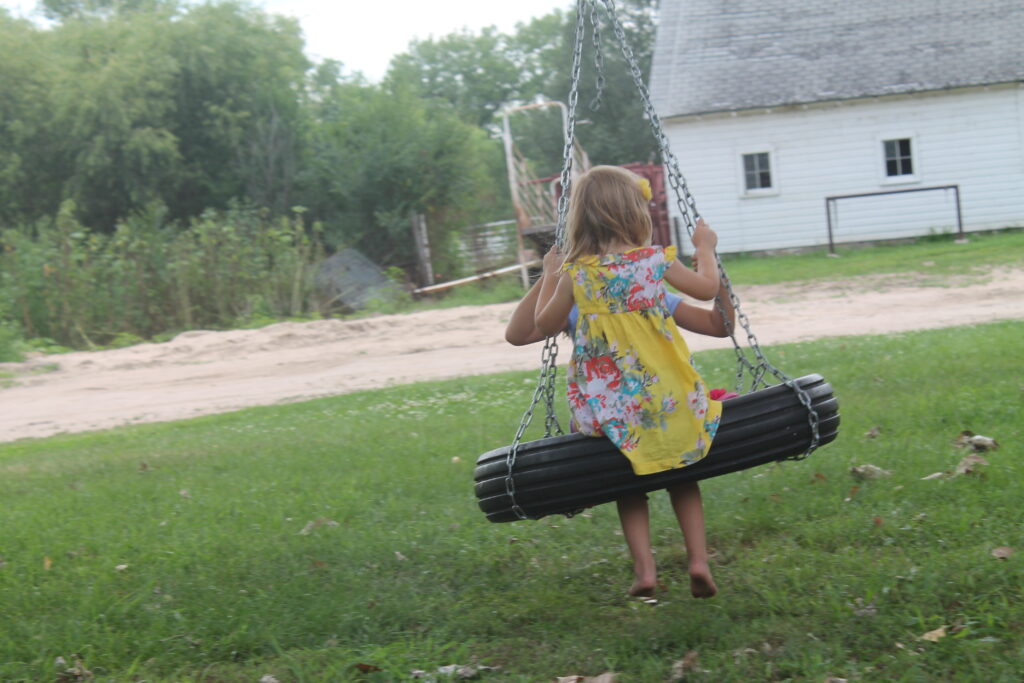
When we moved to town, there was an old tree to greet us there, too. This one blessing us with seed pod helicopters in lieu of the cotton that “snowed” each summer at the ranch. It sheltered a fairy garden and held the tree fort that became the water slide.
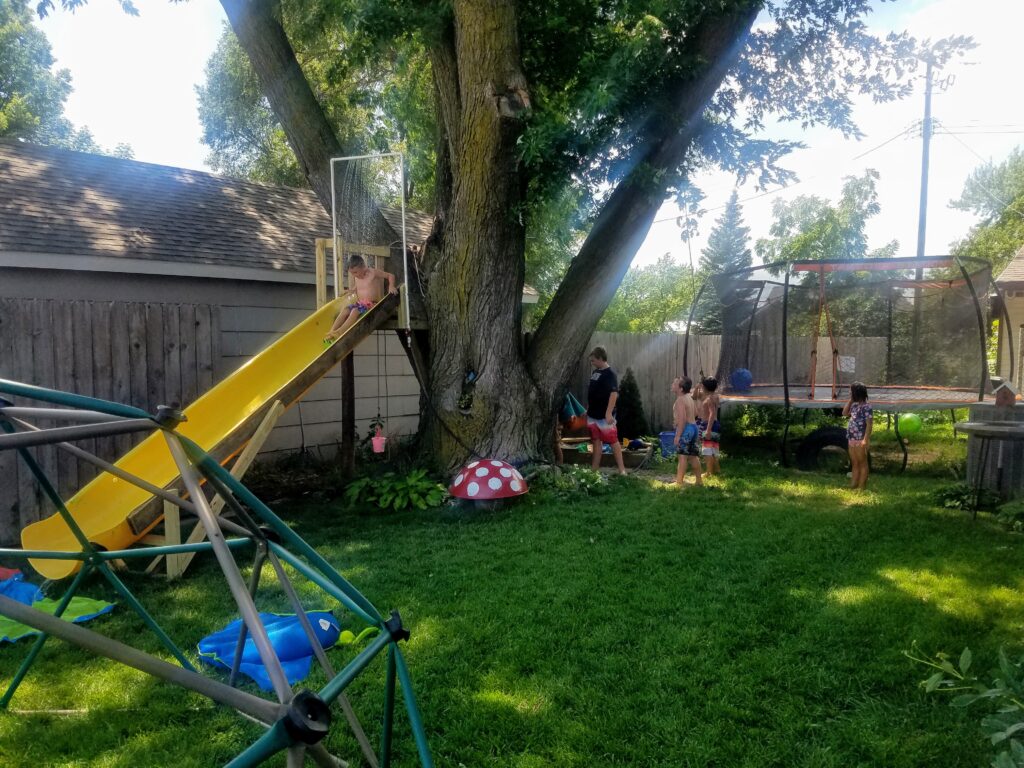
Each home gave us a tree, each tree, a blessing.
The trees around me now inspire me because of their resilient growth.
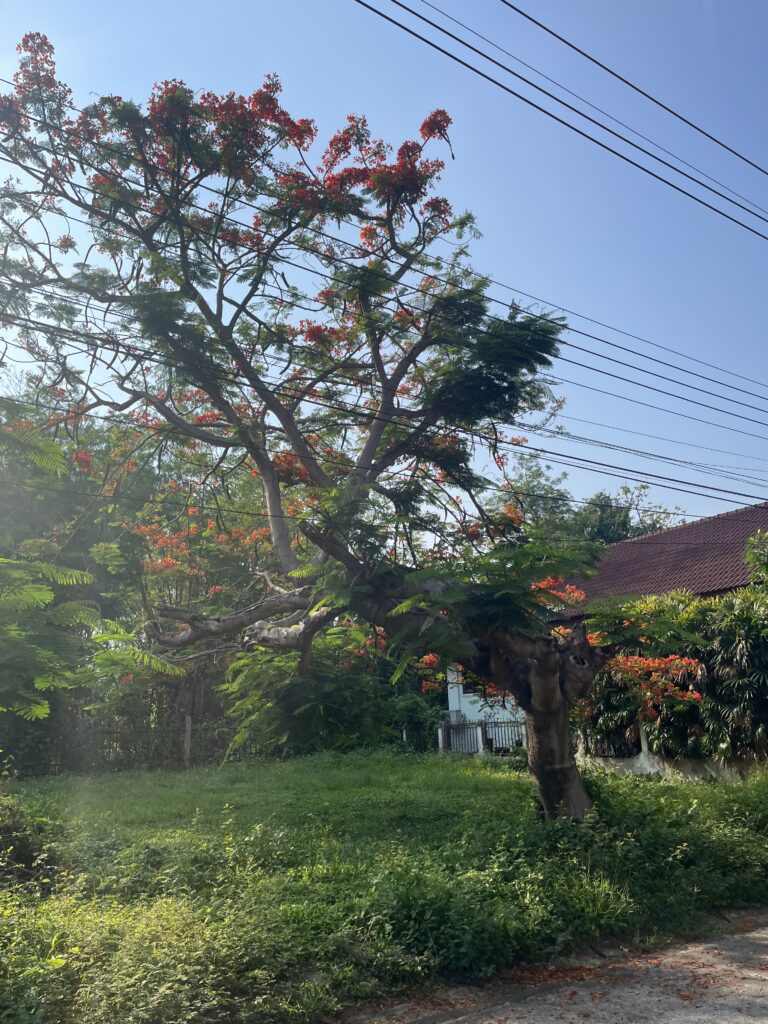
They bend, adjust: growing around power lines and avoiding snares. Always beautiful. Still blooming bright.
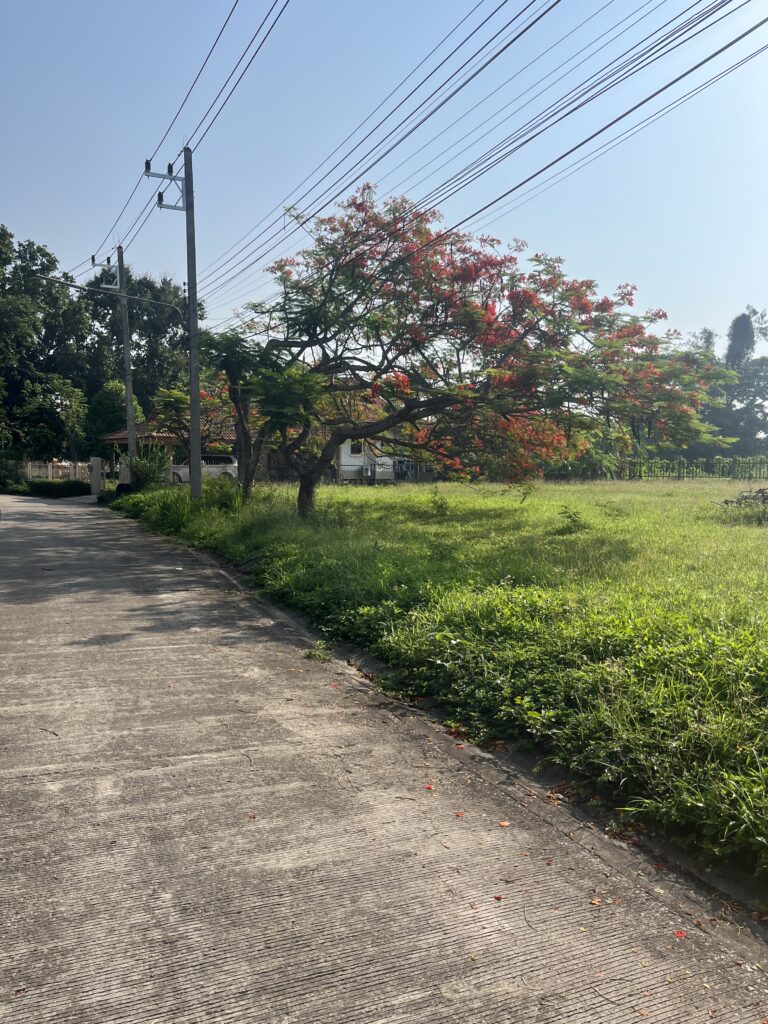
I love that these people bent their wall around the tree. And the tree, in turn, bends out from their home, leaning over the road to provide a canopy of welcome shade.
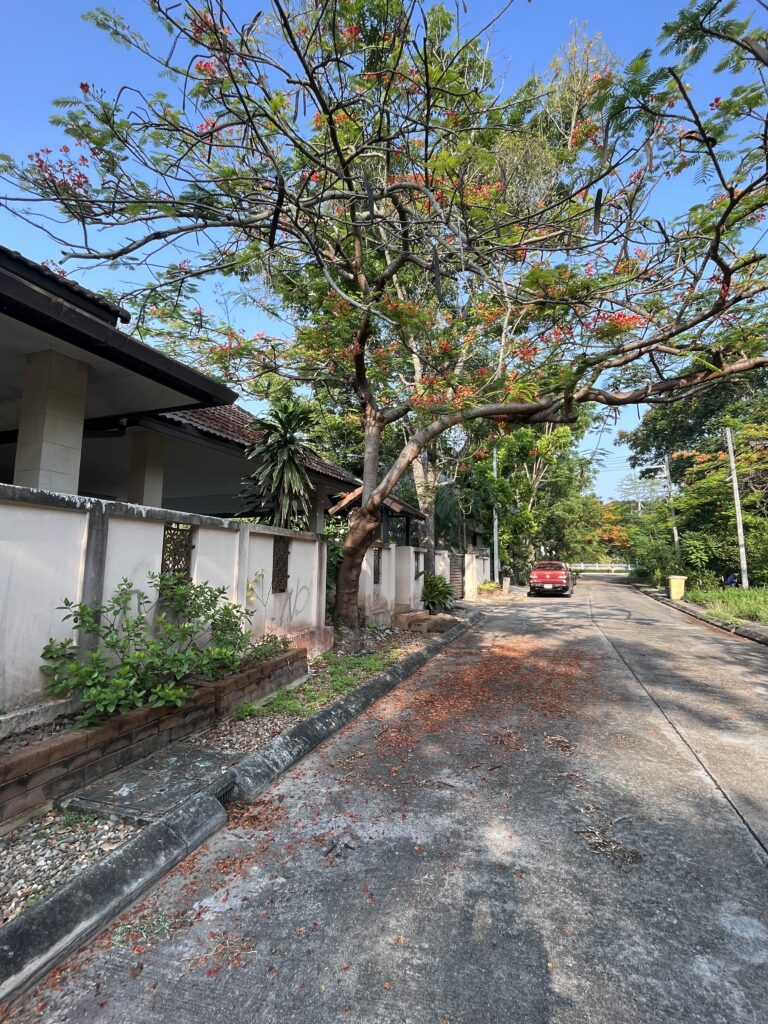
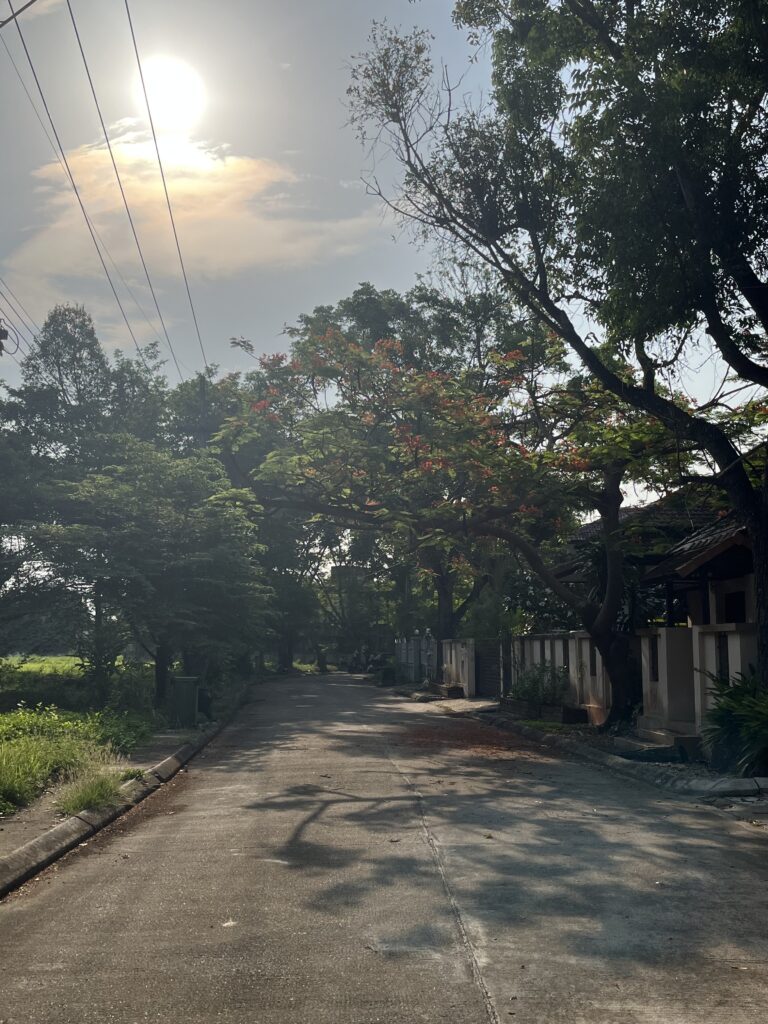
And then there is this one. While standing tall and strong, it still finds a way to lean toward the water: drawn to its refreshing stillness and abundant source of life.
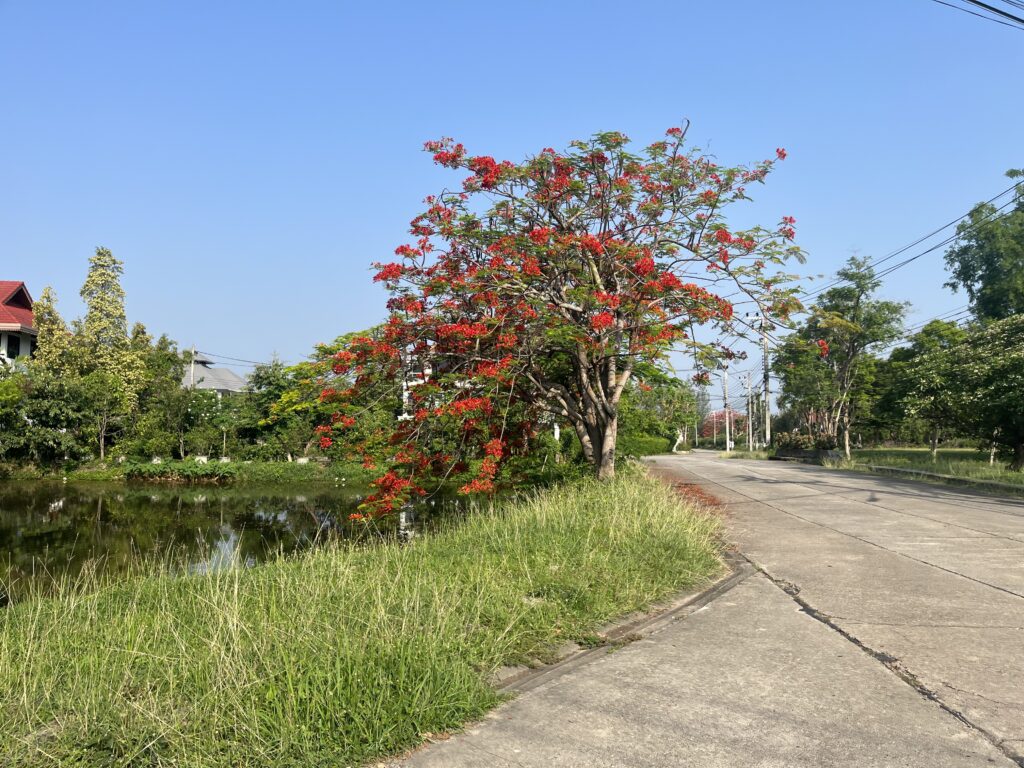
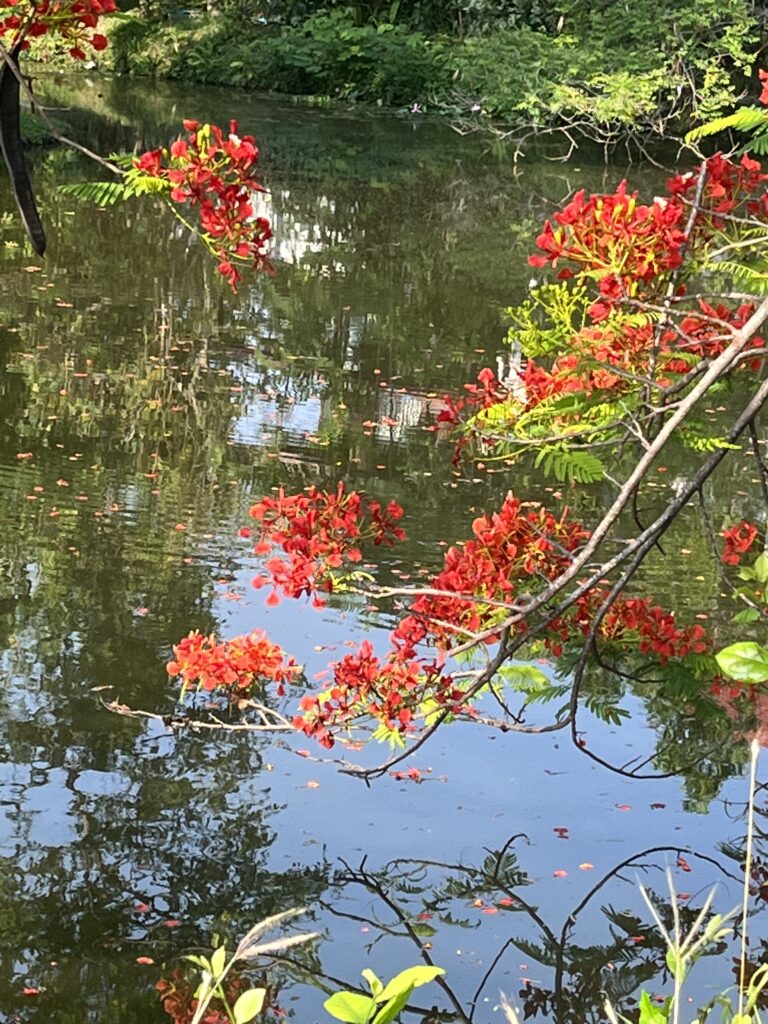
In each place I have lived, I have worked to put down roots, reaching deep and holding tight. Torn up, replanted, pruned, I admit I feel lost some days. I have been busy reaching, growing, dreaming in one direction: but if that way is cut off, I too must grow in another direction. Like these trees, I am doing the slow work of bending. Like these trees, I lean into the still waters where I find refreshment for my soul. Always, forever, finding new ways to reach up.
-
“IT COULD BE WORSE” IS NOT THE SAME AS BEING “GOOD”
It’s amazing to realize how fast I can adapt to new surroundings and at the same time fail to understand the impact of that ability. If you have been following us, you’ve likely seen us post about the air quality in Chiang Mai (like Alisha’s post from a few weeks ago: https://ourparadoxology.com/breathing-paradox/). From mid-January through late April or May, villagers in Northern Thailand, Laos, and Myanmar routinely burn the jungles, fields, ditches, and rice paddies. There’s debate as to the reason for this practice but the results are the same. Due to the mountainous terrain, lack of seasonal rainfall, and shortage of wind, the rising smoke has nowhere to go and subsequently hovers like a suffocating blanket over Chiang Mai.
Having lived on open prairies of North Central Nebraska, I never once thought about air quality. We were always breathing fresh air. “Bad air” was how we might have referred to seasonal pollen, but, even then, the pollen signified vibrant and healthy ecosystems all around us.
The Air Quality Index (AQI) has six color ranges: Green 1-50, Yellow 51-100, Orange 101-150, Red 151-200, Purple 201-300, and Maroon 301+. The air quality in Atkinson, NE, regularly hovers in single digit territory, or comfortably Green. When we stepped off the plane in Chiang Mai, the air quality was about 125 – orange. By mid-April, we had air quality readings in excess of 500. Just this week, it has dropped for the first time since we’ve lived here to below 100 – yellow. Comparatively, we now feel incredible, and yet, we are still a long way from the air quality we’re used to.
What I am learning through all of this is how easily I adjust to circumstances around me, regardless of if they are positive or negative. When adversity becomes normal, I adjust to the new normal without regard to the consequences. It is like the slow boiling frog analogy. I think It is easy to understand the metaphor of the water increasing temperature just like the air quality getting worse. Just like the proverbial frogs, I acclimate to the harsh environment around me. One might argue to be an enviable dexterity of personality. What I don’t as easily recognize is that when the environment starts to improve (the water temp drops or air quality cleans up), I become excited and thankful for the relief, but don’t even realize that the new present conditions are still worse than what I should expect or desire. A water temperature of 120 is far less than 212, but not remotely close to the temperature a frog would normally be expected to thrive in.
While it’s a skill and positive attribute having the ability to function amid turmoil, tribulation, adversity, or hardships, the danger is being content with the new normal, or adjusting to a dangerous situation that isn’t as bad as it was at its worst, but still worse than it was before the situation arose in the first place. To put it another way, a child may start off clean but when he finds an irresistible mud puddle and proceeds to cover himself head to toe, the first action is to hose him off. It’s true that he’s cleaner than he was when the mud was caked in his hair, but it’s not the same as being clean.
My spiritual journey is the same. I may not be as flagrantly bad as I once was, but that’s not the same as being as clean as I should be. My ability to adapt is not a strength when it comes to getting comfortable to the sin around me, even when I experience great relief from previous degrees of sinful bondage. I think Satan uses the skill of contentment as a weapon against improvement: I’m better than I once was, but that is not the same as being as good as I should be. It’s not an argument for effort. I can’t clean my sin away more than I can make it rain to clear the smoke. My ability to adjust easily to new situations can subsequently be a barrier preventing me from experiencing the necessary cleansing only Jesus’ blood can offer.

